Risultati: 84

Funzione/Ruolo
Professoressa associata in Storia dei Paesi islamici e direttrice del GramsciLab, Centro Interdipartimentale di Studi Internazionali gramsciani, presso l'Università di Cagliari.
Percorso professionale
Laureata presso la Facoltà di Scienze Politiche (Istituto di Studi Africani e Orientali), ha ottenuto un dottorato di ricerca presso lo stesso Ateneo, nel settore "Storia e Istituzioni dell'Asia e dell'Africa moderna e contemporanea”, una borsa di studio post dottorato presso la facoltà di Scienze Politiche Federico II di Napoli (1991) e una presso l’Ateneo di Cagliari, facoltà di Scienze Politiche. In quanto titolare della medesima nel biennio 1992-94 ha svolto una ricerca sull'integralismo nei Paesi del Nordafrica.
Nel 1997 diventa ricercatrice alla Facoltà di Scienze Politiche di Cagliari (1997), dal giugno 2006 è professoressa Associata in Storia dei Paesi Islamici (LOR10) presso la Facoltà di Scienze Economiche, Giuridiche e Politiche di Cagliari, Dipartimento di Scienze politiche e sociali.
Risultati scientifici
Si occupa di problematiche del mondo arabo contemporaneo, in particolare di dissenso politico e giovanile, di islam politico e di radicalismo islamico, della diffusione del pensiero di Antonio Gramsci nel mondo arabo, di immigrazione musulmana in Italia e in Europa. Le aree del mondo arabo di sua specifica competenza sono la Tunisia e l’Egitto. Fra i progetti di ricerca attivati più di recente, la diffusione del pensiero di Gramsci nel dibattito politico e culturale nel mondo arabo post 2011. Recentemente è stata Principal investigator di un progetto dal titolo “I processi di democratizzazione nei Paesi arabi mediterranei. Il ruolo delle Università e dei Centri di ricerca” (2010-2012) e di un progetto dal titolo “A lezione da Gramsci. Stato, partecipazione democratica e società civile nelle due sponde del Mediterraneo”, in partenariato con la Sapienza di Roma e l’università di Jendouba (Tunisia). Ha collaborato in qualità di esperta per le questioni di inclusione religiosa e culturale presso vari enti pubblici (Regione, Provincia, Comuni, Prefettura, Questura, Scuole e Istituti) e privati (Università della Terza Età, Fondazione Solidarietà e Diritti Luca Raggio, Associazioni culturali varie). Attualmente è principal investigator del progetto di una ricerca dal titolo “ Per una mappatura del pensiero di Antonio Gramsci nel mondo. Ricezione, traducibilità, declinazioni teoriche e praxis gramsciane”.
Attività editoriali e pubblicazioni
Pubbliazioni recenti:
[2019], Manduchi P., Melis N. (a cura di), Gihad. Definizioni e riletture di un termine abusato, Mondadori Università.
[2019] Manduchi P., Marchi A (a cura di), A lezione da Gramsci. Democrazia, partecipazione politica, società civile in Tunisia, Roma, Carocci.
[2018] Manduchi P. (a cura di), Nelle aule e per le strade: studenti e lotte politiche. Casi di studio dall'Africa e dall'Asia, Bologna, libri di Emil.
[2018] Manduchi P., “Nasser e il nazionalismo arabo”, STORIA DEL PENSIERO POLITICO, numero monografico "Nasser 100 anni dopo. La sfida del nazionalismo e del socialismo arabi", a cura di M. Campanini, Il Mulino.
[2017] Manduchi P., Marchi A., Vacca G.(a cura di), Gramsci nel mondo arabo, Il Mulino.
[2016] Manduchi P., Università e movimenti studenteschi nell'Egitto contemporaneo (1908-1981), Carocci.
[2015] Manduchi P, “Student and Dissent in Egypt. From the Khedival Period to the Protests of 1968”, ORIENTE MODERNO, 95 (1-2). 125-144.
[2014] Manduchi P. (a cura di) I movimenti giovanili nei paesi arabi mediterranei. Dalle indipendenze nazionali a oggi, Carocci editore, 15-43.
[2010] Manduchi P., Baldussi A. (a cura di), Gramsci in Asia e in Africa e in Africa, Aipsa edizioni.
Riconoscimenti e premi
È stata nominata con decreto rettorale Referente dell’Ateneo di Cagliari nel Comitato scientifico per l’Anno Gramsciano 2017.
È nel Comitato scientifico della Fondazione Casa Museo Gramsci dal 2017.
Direttrice del GramsciLab, Centro Interdipartimentale di Studi Internazionali gramsciani, Università di Cagliari.

Area Politica internazionale
Competenze: de-radicalizzazione in Asia, geopolitica in Asia, sicurezza in Asia
Parole chiave: Afghanistan, ASEAN (Associazione delle Nazioni del Sud-est asiatico), BRI (Belt and Road Initiative), Cina, Iran, ISIS, JCPOA (Joint Comprehensive Plan of Action ), Oceano Pacifico, Pakistan, Subcontinente indiano
Regione: Lazio
Funzione/Ruolo
Analista senior presso Ce.S.I. (Centro Studi Internazionali), Roma
Percorso professionale
Laureata in Politiche Europee ed Internazionali all’Università Cattolica del Sacro Cuore di Milano nel 2012, ha poi conseguito il master in Sicurezza Economica, Geopolitica e Intelligence presso la SIOI (Società Italiana per le Organizzazioni Internazionali), a Roma. Entra al Ce.S.I. nel 2013 come Junior Fellow e, l’anno successivo, assume la responsabilità del desk Asia e Pacifico. Dal 2019 è Senior Analyst.
L’organizzazione di progetti con istituti partner, la porta spesso a visitare i Paesi di propria competenza.
Risultati scientifici
È autrice di pubblicazioni e analisi in materia di politica internazionale e di sicurezza per le aree di sua competenza.
Ha insegnato alla Scuola Ufficiali dei Carabinieri alla Scuola Addestramento di Specializzazione della Guardia di Finanza e al Corso di Analisi, Geopolitica e Sicurezza organizzato dal Ce.S.I. – Centro Studi Internazionali.
Attività editoriali e pubblicazioni
[2019] Manenti F, Oltre la BRI: gli investimenti cinesi nell’Unione Europea, Ce.S.I.
[2018] Manenti F, Il Pakistan alla prova della Deradicalizzazione, Chillemi Editore.
[2018] Manenti F, Il futuro dell’Iran Deal senza gli Stati Uniti (The Future of Iran Deal without the United States), Ce.S.I. May 2018[1]
[2018] Ungari A. – Anghelone F. (eds.), Atlante geopolitico del Mediterraneo 2018 (Geopolitical Atlas of the Mediterranean 2018), capitolo sulla Giordania (chapter on Jordan).
[2018] Manenti F, The Evolution of Jihadist Radicalization in Asia, Ce.S.I. – EFD (eds.), with the contribution from the Italian Ministry of Foreign Affairs
[2018] Manenti F, La competizione tra al-Qaeda e Daesh per la destabilizzazione dell’Afghanistan (The competition between al-Qaeda and Daesh for destabilizing Afghanistan), Ce.S.I.[2]
[2016] Manenti F, Manenti F. - La morte del Mullah Mansour e la nuova leadership talebana (Mullah Mansour’s death and the new Taliban leadership), Ce.S.I.
[2015] Manenti F, I riflessi dell’accordo sul nucleare sulla politica interna di Teheran (The effects of the Nuclear Deal on Iranian national politics), Rapporto per l’Osservatorio di politica internazionale del Parlamento italiano.
[2015] Manenti F, Le incognite per l’Afghanistan da ISAF a Resolute Support (Afghanistan’s unknown factors from ISAF to Resolute Support), Rapporto per l’Osservatorio di politica internazionale del Parlamento italiano.
[2015] Manenti F, Il negoziato sul programma nucleare iraniano e gli equilibri politici a Teheran (Iran’s Nuclear Deal and the the political balance in Teheran), Rapporto per l’Osservatorio di politica internazionale del Parlamento italiano.

Area Politica internazionale
Competenze: dinamiche di polarizzazione e identitarie nel Medio Oriente contemporaneo, geopolitica nell'area euro-mediterranea, minoranze etno-religiose, questioni politiche e sociali nella Libia contemporanea, questioni politiche e sociali nell’Egitto contemporaneo, relazioni internazionali nell'area euro-mediterranea, storia contemporanea del Nord Africa e del Medio Oriente
Parole chiave: autoritarismo, Berberi, Copti, coronavirus, Covid-19, crisi economica, Egitto, geopolitica, Libia, Medio Oriente, minoranze, Nord Africa, repressione, securitizzazione della pandemia, sicurezza
Regione: Lazio
Funzione/Ruolo
Ricercatrice presso il Dipartimento di Scienze Sociali ed Economiche, Università di Roma La Sapienza. Professoressa aggregata di Storia del Nord Africa e del Medio Oriente e di Globalizzazione e Relazioni Internazionali presso il Dipartimento di Scienze Sociali ed Economiche, Università di Roma La Sapienza.
Percorso professionale
Alessia Melcangi si laurea nel 2008 in Storia Contemporanea presso l’Università di Catania. Dopo aver conseguito il dottorato in Pensiero politico e istituzioni nelle società mediterranee, presso la Facoltà di Scienze Politiche dell’Università di Catania nel 2011, svolge diverse missioni di studio e ricerca in Francia, Inghilterra, Egitto e Giordania. Nel 2008 è visiting research fellow presso il Centre d’Études et de Documentation Économiques, Juridiques et Sociales (CEDEJ) e presso il Dominican Institute for Oriental Studies (IDEO) del Cairo. È titolare di un assegno di ricerca dal 2013 al 2014 presso il Dipartimento di Scienze Politiche e Sociali dell’Università di Catania, dal 2017 al 2018 presso il Dipartimento di Scienze Sociali ed Economiche (DiSSE) dell’Università di Roma La Sapienza e responsabile della ricerca su “Stati-nazione e minoranze nei paesi dell’Africa mediterranea” nell’ambito del Programma di Ricerca Scientifica di Rilevante Interesse Nazionale (PRIN), anno 2010-2011 del MIUR.
Dal 2016 collabora con il Centro di Ricerche sul Sistema Sud e il Mediterraneo allargato – CRiSSMA dell’Università Cattolica del Sacro Cuore di Milano ed è docente del Master universitario di I livello “Migrazione e Sviluppo – Migration and Development” del Dipartimento di Scienze Sociali ed Economiche dell’Università di Roma La Sapienza, docente del Master universitario di I livello “Middle Eastern Studies” (MIMES) dell’Università Cattolica del Sacro Cuore di Milano e membro del comitato scientifico di indirizzo di ReaCT-Osservatorio sul Radicalismo e il Contrasto al Terrorismo. Da maggio 2019 è Ricercatrice a tempo determinato B presso il Dipartimento di Scienze Sociali ed Economiche dell’Università di Roma La Sapienza.
Risultati scientifici
Alessia Melcangi si occupa da diversi anni di storia contemporanea del Nord Africa e del Medio Oriente, geopolitica e relazioni internazionali nell’area euro-mediterranea, minoranze etno-religiose, dinamiche di polarizzazione e identitarie nel Medio Oriente contemporaneo (in particolare i copti e i berberi) e di questioni politiche e sociali nell’Egitto e nella Libia contemporanei. In riferimento a questi temi ha pubblicato diverse monografie, articoli e policy papers su riviste e volumi italiani e internazionali.
Ha partecipato alle attività del Centro di Ricerche sul Sistema Sud e il Mediterraneo Allargato (CRiSSMA) nell’ambito delle ricerche sul contesto politico, economico e di sicurezza contemporaneo della Libia; collabora a un progetto sulla libertà e i diritti umani coordinato dal CRiSSMA e dal The Royal Institute for Inter-Faith Studies (RIIFS) di Amman, nell’ambito delle ricerche sul dialogo interreligioso; nell’ambito della difesa e sicurezza svolge attività di indirizzamento e di ricerca presso ReaCT – Osservatorio sul Radicalismo e il Contrasto al Terrorismo.
Attività editoriali e pubblicazioni
[2018] Melcangi A, Statualità e minoranze: meccanismi di resistenza e integrazione in Medio Oriente. Il caso dei cristiani copti in Egitto, Ledizioni.
[2018] Melcangi A, Divide et impera: the political application of sectarianism in the Egyptian context. From the Sadat years to the reign of Mubarak (1970-2011), in Demichelis M (ed.), “Religious Violence, Political Ends. Nationalism, citizenship and radicalizations in the Middle East and Europe”, Georg OLMS Verlag, Hildesheim 2018, pp. 35-53.
[2018] Melcangi A, Fanfani auspica giorni più sereni agli italiani in Egitto. La comunità italiana nell’Egitto di Gamal‘Abdal-Nasser e la visita di Fanfani attraverso l’analisi dei documenti diplomatici italiani, in Ventunesimo Secolo. Rivista di studi sulle transizioni, 43, FrancoAngeli.
[2018] Melcangi A, “Gli aqbāt al-mahjar e l’internazionalizzazione della questione copta dagli anni Settanta al regime di Mubarak”, in El Houssi L (ed.), in Minoranze in Nord Africa e Medio Oriente tra tradizione e modernità, numero monografico di “Ricerche Storiche”, XLVIII, 1, pp. 19-33.
[2017] Melcangi A, I copti nell’Egitto di Nasser. Tra politica e religione (1952-1970), Carocci.
[2017] Melcangi A,“Under the Same Flag”: the Copts of Egypt and the challenges of Nasserist Nationalism”, in Demichelis M, Maggiolini P. (eds.), The Struggle to Define a Nation: Rethinking Religious Nationalism in the Contemporary Islamic World, Gorgias Press, pp. 161-194.
[2016] El Houssi L, Melcangi A, Torelli S, Cricco M (eds.), North African Societies after the Arab Spring: Between Democracy and Islamic Awakening, Cambridge Scholars Publishing.
[2016] Melcangi A, ‘Church, Intellectuals and Youth Movements: Contemporary Understandings of Secularism and Tradition within the Egyptian Coptic Community’, in El Houssi L, Melcangi A, Torelli S, Cricco M.(eds.), North African Societies after the Arab Spring: Between Democracy and Islamic Awakening, Cambridge Scholars Publishing, pp. 102-129.
[2015] Melcangi A, ‘Identità contestata, identità condivisa. I copti tra nazionalismo e rivendicazioni comunitarie nell’Egitto contemporaneo’, in Cresti F. (ed.), Minoranze, pluralismo, stato nell’Africa mediterranea e nel Sahel, Aracne, pp. 155-198.
[2013] Melcangi A., ‘La questione confessionale nell’Egitto post-rivoluzionario’, in Cantaro A (ed.), Dove vanno le primavere arabe?, Ediesse, pp. 83-90.
[2008] Melfa D, Melcangi A, Cresti F. (eds.), Spazio privato, spazio pubblico e società civile in Medio Oriente e in Africa del Nord, Giuffré.
Riconoscimenti e premi
Melcangi è membro del comitato scientifico di diverse organizzazioni (ReaCT – Osservatorio sul Radicalismo e il Contrasto al Terrorismo, The Square – Mediterranean Centre for Revolutionary Studies), associazioni nazionali ed internazionali (Middle East Studies Association, Società Italiana di Storia Internazionale, British Society for Middle Eastern Studies; Società per gli Studi sul Medio Oriente - SeSaMO) e della segreteria scientifica della rivista pubblicata dalla Franco Angeli Storia Urbana, Rivista di studi sulle trasformazioni della città e del territorio in età moderna.

Area Politica internazionale
Competenze: cooperazione e sviluppo, economia informale in Asia, Africa e America Latina, economia politica dell'India, economia politica internazionale, globalizzazione e sviluppo, povertà e lavoro, storia del femminismo nello sviluppo
Parole chiave: catene globali di produzione, commercio equo e solidale, coronavirus, Covid-19: impatto sulle ineguaglianze, fabbriche globali, filiera globale del tessile, India, responsabilità sociale di impresa, riproduzione sociale e sviluppo, standard globali sul lavoro
Regione: ESTERO
Funzione/Ruolo
Senior Lecturer in Development Studies alla School of Oriental and African Studies (SOAS) University of London
Percorso professionale
Mezzadri è una economista laureatasi alla Sapienza con 110/100 e lode nel 2000. Dopo esperienze di insegnamento in Italia e Svizzera con la European School of Economics, ottiene un Master e un dottorato di ricerca presso la SOAS di Londra. Nel 2008 viene assunta dalla sua alma mater come docente, e ad oggi viene promossa a professoressa associata.
Risultati scientifici
La ricerca di Mezzadri verte su globalizzazione, mercati del lavoro e povertà. Si occupa prevalentemente di catene globali di produzione nel tessile ed abbigliamento, di standard sul lavoro, responsabilità sociale di impresa e commercio equo. La ricerca di Mezzadri è stata finanziata dalla ESRC e British Academy.
Attività editoriali e pubblicazioni
Selezione di libri
[2017] Mezzadri A, The Sweatshop Regime: Labouring Bodies, Exploitation and Garments Made in India. Cambridge: Cambridge University Press.
Selezione di articoli
[2021] Barnett BS, Carlo AD, Ruwanpura K, Mezzadri A. 'The Invisible People Behind Our Masks'. Annals of Internal Medicine.
[2021] Stevano S, Mezzadri A, Lombardozzi L, Bargawi H. 'Hidden Abodes in Plain Sight: The Social Reproduction of Households and Labour in the COVID-19 pandemic'. Feminist Economics.
[2020] Mezzadri A, Ruwanpura K. How Asia’s clothing factories switched to making PPE – but sweatshop problems live on, SOAS Research Online.
[2020] Mezzadri A, A crisis like no other: social reproduction and the regeneration of capitalist life during the COVID-19 pandemic, SOAS Research Online.
[2017] Mezzadri A, Lulu F, ‘Classes of Labour’ at the Margins of Global Commodity Chains in India and China'. Development and Change, (49) 4, pp 1034-1063.
[2017] Mezzadri A, Prentice R, De Neve G, Ruwanpura K, 'Health and Safety in Garment Workers’ Lives: Setting a New Research Agenda'. Geoforum, (88) Jan, pp 157-160.
[2016] Mezzadri A,'Class, gender and the sweatshop: on the nexus between labour commodification and exploitation'. Third World Quarterly, (37) 10, pp 1877-1900.
[2016] Mezzadri A,The informalization of capital and interlocking in labour contracting networks'. Progress in Development Studies, (16) 2, pp 124-139.
[2015] Mezzadri A,Why inequality matters – for the rich and the poor'. The Conversation UK [Online].
[2015] Mezzadri A,A ‘song of the wage’ for Rana Plaza'. New Internationalist.
[2015] Mezzadri A, 'Free to stitch, or starve capitalism and unfreedom in the global garment industry''. Open Democracy: Beyond Trafficking and Slavery.
[2014] Mezzadri A,'Cambodian sweatshop protests reveal the blood on our clothes'. The Conversation UK.
[2014] Mezzadri A,'Indian Garment Clusters and CSR Norms: Incompatible Agendas at the Bottom of the Garment Commodity Chain'. Oxford Development Studies, (42) 2, pp 217-237.
[2014] Mezzadri A,'Backshoring, local sweatshop regimes and CSR in India'. Competition and Change, (18) 4, pp 327-344.
[2014] Mezzadri A,'Are Ethical Initiatives Successful in the Indian Garment Industry? A Focus on Homeworkers'.Development Viewpoint 83.
Riconoscimenti e premi
Young Scholar Award, Indian Society For Labour Economics.
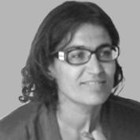
Area Politica internazionale
Competenze: cooperazione territoriale, politiche europee in tema di migrazioni, politiche internazionali in tema di migrazioni, sistemi di accoglienza e asilo dei migranti
Parole chiave: Africa occidentale, Corno d'Africa, diaspora, migranti, migrazioni, Nord Africa
Regione: Lombardia
Funzione/Ruolo
Direttrice del progetto MENTOR2 e Collaboratrice del thank tank CeSPI (Centro Studi di Politica Internazionale) come esperta senior di migrazioni internazionali e studi sullo sviluppo.
Percorso professionale
Petra Mezzetti ha fatto parte del team che redige il Rapporto sullo Sviluppo Umano (Human Development Report) – HDR 2000-2001 e 2002. Ha collaborato con l’Alto Commissariato per i Diritti dell’Uomo a Ginevra; ha successivamente iniziato a collaborare con il CeSPI (Centro Studi di Politica Internazionale) lavorando su progetti in tema di cooperazione decentrata e territoriale e su migrazioni internazionali per diversi committenti (MAECI; OIM; UNHCR; WB; FIIAP; Ministero dell’Interno; Fondazioni Bancarie, Comune di Milano). Parallelamente ha completato un dottorato di ricerca in studi urbani europei (URBEUR) e svolto attività di consulenza e di valutazione per ICMPD su processi intergovernativi in Africa (i.e. Processo di Rabat). Ha un Dottorato in Studi Europei Urbani (Bicocca, Milano) e un Master in Economia dello Sviluppo (IUSS, Pavia). Si è laureata con lode in Lettere Moderne presso l’Università di Bologna.
E' direttrice di MENTOR2 il progetto del Comune di Milano finanziato dall'Unione Europea, sulla migrazione legale fra Italia, Tunisia e Marocco.
Risultati scientifici
Si occupa di monitoraggio e valutazione del sistema di accoglienza in Italia. Dal 2017, all’interno del progetto MIRECO - Monitoring Improvement of REception COnditions - su fondi FAMI, è responsabile insieme ad un team di esperti per la valutazione e il monitoraggio del sistema di accoglienza italiano (creazione di strumenti, redazione di linee guida, missioni sul campo) in collaborazione con UNHCR e la committenza, in particolare Ministero dell’Interno DLCI e le Prefetture.
Dal 2014 al 2019 all'interno dell'Iniziativa Fondazioni for Africa Burkina Faso, finanziata da ACRI (Associazione di Fondazioni e di Casse di Risparmio) è responsabile di diverse azioni di formazione, progettazione, facilitazione di partenariati e capitalizzazione che hanno visto il coinvolgimento diretto delle associazioni della diaspora burkinabè residente in Italia in diverse regioni. In particolare è responsabile per la selezione, accompagnamento e monitoraggio di alcuni proposte progettuali sviluppate da organizzazioni burkinabè e associazioni del Terzo settore in alcuni contesti locali in Italia in diverse regioni, per l'organizzazione di seminari di riflessione e di una pubblicazione in corso.
All’interno del progetto MENTOR - MEditerranean Network for Training Orientation to Regular migration, finanziato dall'UE attraverso la Mobility Partnership Facility implementata da ICMPD (International Center for Migration and Policy development), con capofila Comune di Milano, ha svolto (2017-2018) il ruolo di ricercatrice senior per la redazione di Linee Guida sul funzionamento del meccanismo per tirocini per giovani tra Italia-Tunisia e Marocco, come misura di sviluppo locale e di migrazione legale e circolare.
Attività editoriali e pubblicazioni
[2019] Mezzetti P., Ceschi S. (a cura di), Ripartire dall'Africa. Esperienze e iniziative di migrazione e di co-sviluppo, Donzelli Editore
[2018] Mezzetti P., "La situazione drammatica, persistente e poco nota degli sfollati interni2, in Frigeri D. e Zupi M. (a cura di), Dall'Africa all'Europa. La sfida politica delle migrazioni, Roma, Donzelli.
[2016] Mezzetti P., "I percorsi e i flussi, al presente e in prospettiva", Prospettive Sociali e Sanitarie, Speciale WelforumEmergenza profughi: quale accoglienza? 1.2-1.3,: 5-9.
[2016] Mezzetti P., Ayuso A., "Tackling Inequality in Cities through Social Innovation" in Call J. (a cura di), Wise Cities. A New Paradigm for Urban Resilience, Sustainability and Well-being, CIDOB, October, Barcelona.
[2016] Mezzetti P., Ayuso A., ‘Tackling Inequality in Cities through Social Innovation’, in Call J. (a cura di), Wise Cities. A New Paradigm for Urban Resilience, Sustainability and Well-being, CIDOB, October, Barcelona.
[2015] Mezzetti P., Ceschi S., The European Union and transnational policy networks in the migration field, in Contemporary Politics, 21(3):1–18.
[2015] Mezzetti P., Coslovi L. e Stocchiero A., Quale spazio per la società civile nel Processo di Khartoum?,Policy brief di Dicembre, Roma, CeSPI.
[2015] Ceschi S., Massimi A., Mezzetti P., Soddu P., La diaspora africana in Italia. Una risorsa nelle relazioni Italia-Africa,Paper redatto per il Seminario Italia-Africa: quale ruolo strategico per la diaspora? - Roma, 15 maggio, Ministero degli Affari Esteri e della Cooperazione Interazionale (MAECI).
[2014] Mezzetti P., Ceschi S., The Senegalese Transnational Diaspora and its role back Home, ITPCM, International Commentary, ISSN. 2239-7949, X, 35, April 2: 13-18.
[2014] Mezzetti P., Saggiomo V., Pirkkalainen P., “Interaction between Somali organisations and Italian and Finnish development actors” in Laakso, L. and Hautaniemi. P. (Eds.) Diasporas for Peace: Case Studies from the Horn of Africa. London: ZED Books.
[2014] Mezzetti P., Bayés Puig S., Andrés Sancho L., Defontaine M., Mato Brey J., Monitoring of the Dakar Strategy Roadmap, Final Report, Processus de Rabat.
[2013] Mezzetti P., Pirkkalainen P., Guglielmo M., Somali Associations’ Trajectories in Italy and Finland: Leaders building trust and finding legitimisation, in JEMS, Journal of Ethnic and Migration Studies, August, 39 (8): 1261-1279.
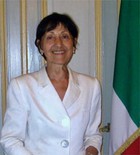
Funzione/Ruolo
Ambasciatrice, Diplomatica
Percorso professionale
Diplomatica in carriera dal 1974. Dopo le sue prime assegnazioni in Somalia e a Dublino è stata alla Direzione Generale per gli Affari Economici del Ministero Affari Esteri nell’ufficio per gli Affari Esterni dell’Europa, rappresentando l’Italia in tutti i Gruppi di Lavoro a Bruxelles e coordinando le Amministrazioni italiane coinvolte fino al 1983, quando ha raggiunto il grado di Funzionaria Reggente dell’Ufficio. In ragione dell’esperienza in tal modo acquisita, è stata assegnata alla Rappresentanza Permanente ONU a Ginevra con il mandato di rappresentare l’Italia in tutti i Gruppi di Lavoro del negoziato ‘Uruguay Round’ del GATT per la liberalizzazione internazionale dei commerci e dei servizi. In questo contesto ha esercitato le funzioni di Presidenza europea nel semestre italiano del 1990.
Nel gennaio del 1992 è nominata Incaricata d’Affari a Belgrado, all’inizio delle guerre balcaniche, ruolo che ricoprirà per tre anni assicurando la protezione della residua presenza ed interessi italiani, contribuendo a definire la politica italiana nel quadro europeo, per fermare il conflitto, conseguire una stabilizzazione democratica della regione, e promuovere la ripresa di un dialogo tra le parti in causa.
Al rientro a Roma nel 1995, viene nominata Capo dell’Unità Balcani/Mediterraneo Orientale (inclusiva di Albania, Turchia, Grecia, Cipro) della Direzione Generale degli Affari Politici ove rimane per oltre cinque anni, partecipando come portavoce dell’Italia nei Gruppi di Lavoro a Bruxelles sui Balcani e Mediterraneo Orientale, coordinando le altre Direzioni Generali del MAE e le altre Amministrazioni italiane, e contribuendo a definire la posizione italiana all’ONU, NATO, OSCE e altre OO.II. Nel 1996, esercita le funzioni di Presidenza della UE durante il semestre italiano e partecipa, sempre come portavoce dell’Italia, alle riunioni internazionali formali e informali per la Bosnia fino al raggiungimento degli Accordi di Dayton.
Nel 1997, quando l’Albania crolla sotto l’urto della crisi politico-economico-finanziaria, contribuisce alla definizione della politica italiana di soccorso al Paese e alla gestione politica dell’“Operazione Alba” di peace-keeping, sicurezza, e ricostruzione, sotto egida dell’ONU. Il successo dell’operazione italiana è universalmente riconosciuto, in primis dalle Nazioni Unite, e viene tuttora citato internazionalmente come esemplare.
Nel 1999 rappresenta l’Italia alla Conferenza di Rambouillet e all’intero negoziato per la gestione della crisi del Kosovo.
Nel 2000, è nominata Ambasciatrice a Damasco (Siria), dove presta servizio per 4 anni con il compito di favorire la pacificazione della regione del Medio Oriente. Rientrata a Roma, nel 2006 viene nominata Direttrice Generale per i Paesi dell’Europa. La “circoscrizione” di competenza si estende da Lisbona a Vladivostok, includendo, oltre ai paesi Europei, i paesi dei Balcani, i tre paesi del Caucaso, le cinque Repubbliche centro-asiatiche, e la Russia. Nel 2008 viene promossa al grado di Ambasciatrice e nel 2009 viene destinata a Ginevra come Rappresentante Permanente d’Italia presso le Nazioni Unite e le Organizzazioni Internazionali per 4 anni.
Risultati scientifici
Attività diplomatica in Medio Oriente, nei Balcani, in Russia, Asia Centrale e Caucaso e Nazioni Unite.
Attività editoriali e pubblicazioni
Mirachian L, Siria e Vicinato, Università Cattolica.
Mirachian L, Siria perché, Guerini
Collaborazione (inter alia): Istituto Affari Internazionali (IAI), quotidiano La Stampa
Riconoscimenti e premi
Il 2 giugno 1991 viene nominata Ufficiale dell'Ordine al merito della Repubblica Italiana su proposta della Presidenza del Consiglio dei Ministri.
Il 10 novembre viene nominata Commendatore dell'Ordine al merito della Repubblica Italiana di iniziativa del Presidente della Repubblica.
il 27 dicembre 2008 è nominata Grande Ufficiale dell'Ordine al merito della Repubblica Italiana su proposta della Presidenza del Consiglio dei Ministri.
Nel 2008 riceve anche il Premio Minerva Una Donna per la Pace.

Funzione/Ruolo
Professoressa associata di Scienza Politica e Relazioni Internazionali presso il Dipartimento di Scienze Politiche e delle Relazioni Internazionali dell’Università di Palermo.
Percorso professionale
Dopo la laurea in Scienze Politiche presso l’Università di Palermo (1995), ha conseguito un M.A. in International Relations and European Studies presso l’Università del Kent a Canterbury (UK) e il dottorato in Relazioni Internazionali presso l’Università di Milano (2001). Fa parte della Società Italiana di Scienza Politica, dell’International Studies Association, della European International Studies Association e della Transatlantic Studies Association. È stata vincitrice di una borsa Fulbright-Schuman (ricerca su International Security, Multilateral Intervention, and the Question of Legitimacy: The Role of Cooperation Between the US and the EU) e visiting scholar presso la Columbia University (Saltzman Institute of War and Peace Studies e Institute on Western Europe) e la Georgetown University (USA). Ha partecipato a diversi gruppi di ricerca nazionali e internazionali, tra gli altri sul ruolo degli Stati Uniti nel sistema internazionale, sulla politica estera italiana, sull’impatto della crisi economica sulla de-europeizzazione della politica estera degli stati dell’Europa meridionale e sulle basi americane in Europa. Ha tenuto lezioni sulla sicurezza ed il cambiamento globale presso l’Istituto di Alti Studi per la Difesa del Centro Alti Studi per la Difesa nell’ambito delle Sessioni di studio IASD (2017, 2018 e 2019). Attualmente insegna Scienza Politica e Relazioni Internazionali presso l’Università di Palermo, e coordina (con Vittorio Parsi) lo Standing Group di Relazioni Internazionali della Società Italiana di Scienza Politica.
Risultati scientifici
L’attività di ricerca si è concentrata su quattro filoni principali:
- la sicurezza e le sue articolazioni, analizzando il concetto e le dimensioni (militari e non militari) della sicurezza e la loro evoluzione, i legami interno-esterno, le politiche e gli strumenti, gli attori (in particolare, USA e UE) e le istituzioni principali (in particolare, le istituzioni multilaterali e le comunità pluralistiche di sicurezza);
- il multilateralismo, analizzando la sua evoluzione (con particolare attenzione al ruolo all’interno dell’ordine egemonico americano e al rapporto con gli Stati Uniti), le sue istituzioni (in particolare, il Consiglio di Sicurezza) e le relative politiche;
- la politica estera e di sicurezza italiana, analizzando le variazioni nella sua europeizzazione e in relazione agli Stati Uniti (con attenzione sia all’ordine egemonico americano sia alle basi americane in Italia) e a Russia e Cina;
- la relazione tra i comportamenti coalizionali degli stati e i cambiamenti nell’organizzazione del sistema politico internazionale.
È componente dell’editorial board del Journal of Transatlantic Studiese referee per numerose riviste scientifiche internazionali.
Attività editoriali e pubblicazioni
[2019] Monteleone, C., Italy in Uncertain Times: Europeanizing Foreign Policy in the Declining Process of the American Hegemony, Lanham, Boulder, New York and London, Lexington Books, 2019.
[2019] Monteleone, C., The United Nations (UN) and the European Union, in Oxford Encyclopedia of European Union Politics, Oxford University Press.
[2019] Monteleone, C., I diritti umani come tema conflittuale nel Consiglio di Sicurezza delle Nazioni Unite, in Ragion pratica, vol. 52, n. 1, pp. 35-50.
[2018] Monteleone, C., Spatial Fragmentation of, and US Support for, the Main Multilateral Institutions of the Western Order, in Clementi, M., Pisciotta B., and Dian, M., (eds.), US Foreign Policy in a Challenging World. Building Order on Shifting Foundations, Springer, London and Milan.
[2016] Monteleone, C., Do terrorism, organized crime (drug production), and state weakness affect contemporary armed conflicts? An empirical analysis, in Global Change, Peace & Security, vol. 28, n. 1, 2016.
[2015] Monteleone, C., Beyond Material Factors? Identity, Culture and the Foreign and Security Policy of the EU, in Cladi L. and Locatelli A. (eds.), International Relations Theory and European Security. We Thought We Knew, Routledge, 2015.
[2015] Monteleone, C., Coalition Building in the UN Security Council, in International Relations, vol. 45, n. 1, pp. 45-68.
[2014] Monteleone, C., Crisi e ordine globale. Verso il declino dell’ordine multilaterale occidentale?, in Atlante Geopolitico Treccani, Roma, Istituto della Enciclopedia Italiana Treccani.
[2012] Monteleone, C., Politiche di sicurezza e cambiamento globale(ed.), Milan, FrancoAngeli.
[2011] Monteleone, C., The Enabling Factor: The Influence of US-EU Cooperation on UN Peace Operations, in European Security, vol. 20, n. 2, pp. 265-289.
[2009] Monteleone, C., The End of the Euro-Atlantic Pluralistic Security Community? The New Agenda of Transatlantic Security Relations in the Global Political System, in N. Fernandez Sola and M. Smith (eds.), Perceptions and Policy in Transatlantic Relations: Prospective Visions from the US and Europe, Routledge.
[2007] Monteleone, C., The Evolution of the Euro-Atlantic Pluralistic Security Community: Impact and Perspectives of the Presence of American Bases in Italy, in Journal of Transatlantic Studies, vol. 5, n. 1, pp. 63-87.

Funzione/Ruolo
Ricercatrice Junior presso i programmi “Sicurezza” e “Difesa” dell’Istituto Affari Internazionali (IAI)
Percorso professionale
Prima di iniziare il percorso come ricercatrice, Karolina Muti gestisce le relazioni internazionali di una piccola azienda marchigiana (2013-2014) e lavora in una ONG che si occupa di richiedenti asilo politico (2014). Nel 2017 si laurea con lode in Politica e sicurezza internazionale presso la facoltà di Scienze internazionali e diplomatiche dell’Università di Bologna (sede di Forlì) con una tesi sulla difesa europea. Durante il suo percorso accademico svolge lezioni di Storia e istituzioni dell’Ue nelle scuole primarie, medie e superiori come formatrice europea con il Centro d’eccellenza Jean Monnet di Forlì ed è vincitrice di due borse di studio grazie alle quali compie periodi di studio a Santiago del Cile e Mosca. Nel 2017 entra a far parte dell’Istituto Affari Internazionali (IAI) come tirocinante e assistente di progetto, per poi entrare a far parte nel 2018 del team di ricerca nei programmi “Sicurezza” e “Difesa” dell’Istituto. Karolina Muti ha svolto attività di ricerca su temi relativi alla difesa e industria della difesa europee, Polonia e strategia di sicurezza polacca, missioni civili dell’UE. Inoltre, si occupa di progetti europei relativi alle minacce non convenzionali NBCR (nucleari, biologiche, chimiche e radiologiche) e ha contribuito alla creazione del primo Cluster italiano dedicato alle minacce NBCR (https://cbrnitalia.it/). Karolina è madrelingua italiana e polacca e parla inglese, spagnolo, e russo.
Risultati scientifici
Karolina ha lavorato a progetti finanziati dalla Commissione Europea (https://www.iai.it/it/ricerche/encircle, https://www.iai.it/it/ricerche/civilnext) e dall’Agenzia di Difesa Europea (EDA) (https://www.iai.it/it/ricerche/european-defence-technological-industrial-base) su tematiche quali i principali e futuri trend nell’industria della difesa europea, la strategia di sicurezza e difesa polacca, le missioni civili dell’Ue, le minacce nucleari, biologiche, chimiche e radiologiche (NBCR). Partecipa inoltre alla creazione e al coordinamento del primo Cluster italiano dedicato alle minacce NBCR (https://cbrnitalia.it/).
A dicembre 2018 Karolina è stata invitata dall’Ambasciata della Repubblica di Polonia a presentare un’analisi su Polonia e difesa europea durante la conferenza per i festeggiamenti del centenario d’indipendenza della Polonia. Ad aprile 2019 è stato presentato presso il Senato uno studio su “Gli italiani e la difesa” al quale ha collaborato (https://www.iai.it/it/eventi/gli-italiani-e-la-difesa-presentazione-dellindagine-iai-laps-sulle-minacce-alla-sicurezza).
I suoi articoli sono stati citati dal German Institute for International and Security Affairs (SWP), (https://www.swp-berlin.org/fileadmin/contents/products/journal_review/2019JR01_lun_sru.pdf), Radio radicale (www.radioradicale.it/scheda / 571749 / rassegna-di-geopoliticala-capita-di-resilienza-due-u-control-le-sovraniste), e nel programma "Il Punto" di Paolo Pagliaro.
Attività editoriali e pubblicazioni
In italiano:
[2019] K.Muti, A.Marrone, “Gli Italiani e la difesa: consenso inatteso su minacce e sicurezza”, in Affarinternazionali.
[2019] (in collaborazione con P.Isernia, A.Marrone et alia), “Gli italiani e la Difesa” (Rapporto di ricerca a cura di Laboratorio di analisi politiche e sociali - LAPS e IAI), Documenti IAI 19|08, Roma.
[2019] K.Muti, “Polonia: garanzia di sicurezza sperasi con Fort Trump”, in Affarinternazionalie Europa Atlantica.
[2018] K.Muti, L.Botti, “La sicurezza dell’Italia e la minaccia nucleare, biologica, chimica e radiologica”, Documenti IAI 18/24, Roma.
[2018] K.Muti, M.Moretti, “Campagna elettorale: linguaggio e scelte retoriche dei candidati” in Affarinternazionali.
In inglese:
[2018] K.Muti, “Poland – the missing link of European defence”, IAI Commentary 18/48, Roma.
[2017] K.Muti, recensione di “The Transformation of Italian Armed Forces in Comparative Perspective” di F. Coticchia e F.N. Moro per The International Spectator.
Riconoscimenti e premi
Nel settembre 2018 viene selezionata dal Ministero di difesa tedesco per svolgere un ciclo di incontri sulle politiche di sicurezza della Germania e dell’Europa a Berlino, con altri esperti e professionisti europei.
Nel marzo 2019 viene selezionata insieme ad altri esperti americani e europei per partecipare a un ciclo di incontri dedicato alla politica estera e alla public diplomacyrussa a Mosca.
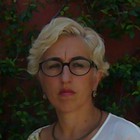
Funzione/Ruolo
Ricercatrice presso l’Università degli Studi di Napoli L’Orientale
Percorso professionale
Studiosa di Turchia contemporanea, insegna Lingua e Letteratura Turca all’Università di Napoli ‘L’Orientale’ nei corsi di laurea triennali e magistrali dal 2007 e collabora come analista politica per diverse testate nazionali e internazionali. Ha conseguito il Dottorato in Storia delle donne e dell’identità di genere nel 2008 con una tesi sulla migrazione operaia turca in Germania occidentale (1961-1984). Precedentemente ha studiato a Berlino (Humboldt Universität, 2005), Istanbul (Bilgi University, Master in Cultural Studies, 2003), Napoli (Laurea in Scienze Politiche, Africa Mediterranea e Medio Oriente, 2002), Parigi (Erasmus, Inalco, 1999). È stata Visiting Research Fellow presso lo Zentrum Moderner Orient (ZMO) di Berlino, il Türkei-Europa-Zentrum (TEZ) di Amburgo.
Risultati scientifici
Lea Nocera è una turcologa contemporaneista. È tra i primi in Italia ad aver associato una competenza areale – conoscenza approfondita del paese, della sua storia, società e cultura e della lingua a livello avanzato – con un’attenzione ai fenomeni più contemporanei e all’analisi dei processi politici. Le sue ricerche sulla Turchia contemporanea si concentrano sulla storia sociale e culturale; studi di genere, studi urbani e mobilitazioni sociali. In particolare, tanto dal punto di vista accademico che professionale, si è occupata di società civile e di diritti delle minoranze; ha approfondito i processi di trasformazione urbana a Istanbul. Si è occupata a lungo di migrazione turca in Europa. Attualmente sta lavorando a un progetto di ricerca sulle relazioni culturali tra Turchia e Europa nel secondo dopoguerra (progetto selezionato nell’ambito delle ERC Starting Grants 2015). Si impegna regolarmente a favore di una alta divulgazione delle conoscenze riguardanti la politica e la società turca in Italia. Nel 2013 ha organizzato il I Convegno di turcologia italiana.
Attività editoriali e pubblicazioni
All’attività accademica affianca da anni un lavoro editoriale: dal 2016 a luglio 2017 è stata coordinatrice scientifica e editoriale della rivista online ResetDOC; fa parte della redazione de Gli Asini, rivista diretta da Goffredo Fofi; è nel comitato editoriale della collana Il Porto delle Idee, L’Orientale University Press, delle riviste accademiche Studi Magrebini edita da Brill e DİYÂR – Zeitschrift für Osmanistik, Türkei- und Nahostforschung / Journal for Ottoman, Turkish and Middle Eastern Studies.
Scrive regolarmente per la testata online Reset.doc. Ha inoltre collaborato con le testate: Lo Straniero, il Corriere della Sera, Pagina99, Micromega, L’Indice dei libri, Arab Media Report, il manifesto.
Come analista politica ha participato a diversi programmi di importanti emittenti radiotelevisive: RAI: Radio1, Radio2, Radio3; Rete Svizzera Italiana/RSI; Radio Radicale; Radio Popolare; Radio Vaticana; RaiNews24; SkyTG24. In Europa per: WDR-Funkhaus Europa, EuradioNantes e Politics.
Ha inoltre realizzato documentari radiofonici sulla Turchia per RadioRai3 e Rsi-Radio Svizzera Italiana. Per RadioRai3 cura, inoltre, come autrice e conduttrice la rubrica ‘La Finestra sul Mediterraneo’ nell’ambito del programma settimanale Zazà.
Nel 2017 ha fondato la rivista online Kaleydoskop – Turchia, cultura e società, di cui è ideatrice.
Tra le sue pubblicazioni: La Turchia contemporanea. Dalla repubblica kemalista al governo dell’Akp (Carocci, 2011); come curatrice Tradurre/Çevirmek. Incontri linguistico-letterari tra Turchia e Italia (L’Orientale Editrice, 2017) e L’impero mediatico di Fethullah Gülen (Arab Media Report/Resetdoc, 2015); come coautrice, #Gezipark. Coordinate di una rivolta (Alegre, 2013),) e The Turkish Touch. Egemonia neo-ottomana e televisione turca in Medio Oriente (Arab Media Report/Resetdoc, 2013).
Il suo libro volume Cercasi mani piccole e abili. La migrazione turca in Germania occidentale, Edizioni Isis, Istanbul è stato tradotto in turco come Manikürlü Eller Almanya’da elektrik bobini saracak dalle edizioni Bilgi Üniversitesi Yayinlari di Istanbul ed è stato inserito nella lista dei migliori 50 libri pubblicati in Turchia nel 2018 del quotidiano Hürriyet.
È inoltre traduttrice di narrativa turca e autrice di numerosi articoli su riviste accademiche.
Riconoscimenti e premi
La sua tesi di dottorato ha ricevuto il Primo premio Franca Pieroni Bortolotti, riconoscimento rilasciato dalla Società italiana delle Storiche in collaborazione con il Comune di Firenze alle migliori ricerche nell’ambito degli studi in Storia delle donne. Nel 2016 è stata selezionata come Young Leader per lo Young Leader Program (YLP), promosso dal Consiglio per le relazioni tra Italia e Stati Uniti. Nel 2018 ha conseguito l'abilitazione Anvur come Professore Associato (II fascia) nel settore 10/N1 - Culture del Vicino Oriente Antico, del Medio Oriente e dell'Africa, dopo aver già ottenuto nel gennaio 2015 lo stesso titolo in Storia contemporanea.
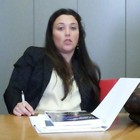
Area Politica internazionale
Competenze: analisi dei mercati energetici, analisi delle strategie di impresa anche in relazione al tema climatico, comunicazione e media in ambito energetico e ambientale
Parole chiave: assicurazioni e clima, disinvestimenti mondiali dal carbone, investimenti O&G, petrolio, scenari di mercato, scenari di prezzo, scenari energetici e investimenti, strategie di impresa
Regione: Emilia-Romagna
Funzione/Ruolo
Economista, analista senior dei mercati energetici con focus su quelli petroliferi presso la società di ricerca e consulenza RIE (Ricerche Industriali ed Energetiche) di Bologna
Percorso professionale
Lisa Orlandi si forma presso la Facoltà di Economia dell’Università del Bologna dove nel 2000 consegue la laurea in Economia Aziendale (vecchio ordinamento) cum laude. Subito dopo entra nel team di ricerca di RIE dove, in qualità di analista senior, partecipa a progetti e analisi di mercato relativi al settore energetico nazionale ed internazionale. Segue costantemente il mercato petrolifero con l’elaborazione di diversi articoli su testate di settore; si occupa di analisi degli scenari e degli investimenti energetici, nonché delle strategie aziendali e di comunicazione delle compagnie Oil&Gas. Negli ultimi anni si è dedicata all’analisi della strategia climatica di importanti compagnie di assicurazioni italiane. Coordina la programmazione settimanale delle analisi pubblicate sul portale RiEnergia https://rienergia.staffettaonline.com/ - di cui è direttore Responsabile - un portale dedito alle tematiche energetiche. Ha svolto negli anni diverse lezioni frontali sui mercati dell’energia presso master universitari ed enti formativi privati e pubblici. Dal 2001 al 2014 è stata anche docente a contratto presso la Facoltà di Economia dell’Università di Bologna svolgendo attività di supporto alla didattica per gli insegnamenti di Economia Industriale ed Economia dei servizi di pubblica utilità.
Risultati scientifici
Nell’ambito della sua attività lavorativa presso il RIE, Lisa Orlandi segue diverse linee di ricerca tra cui: lo sviluppo delle risorse di petrolio e gas a livello nazionale, filone che ha portato alla redazione di diversi paper sul tema e alla realizzazione di un libro dal titolo “La coesistenza tra Idrocarburi e Territorio in Italia”, di cui è stata curatrice insieme al Professore Alberto Clo nonché autrice e co-autrice di alcuni capitoli. Coordina report periodici dedicati all’analisi degli scenari e degli investimenti energetici e le attività di assistenza a compagnie di assicurazione impegnata nella realizzazione della loro strategia climatica.
Attività editoriali e pubblicazioni
Lisa Orlandi è Direttrice Responsabile della rivista online RiEnergia https://rienergia.staffettaonline.com/ e fa parte del comitato di redazione della rivista trimestrale Energia. Ha inoltre pubblicato numerosi articoli in testate specializzate, alcuni dei quali sono di seguito riportati:
[2018] Orlandi, L., L’apparente equilibrio del mercato petrolifero mondiale, newsletter GME n. 114, aprile.
[2017] Orlandi, L., Il braccio di ferro tra OPEC e shale USA, newsletter GME n. 104, maggio 2017.
[2016] Orlandi, L., Il mercato petrolifero nel 2016: l’illusione della stabilità, newsletter GME n. 96, dicembre.
[2015] Orlandi, L., Clô, F., Oil market, un anno dopo il crollo: un nuovo punto di equilibrio?, newsletter GME n.84 luglio, pubblicato anche su Medenergie in lingua francese.
[2014] Orlandi, L., Olio: raffinazione, logistica, rete carburanti, in Caprara G. (a cura di), Energia per l'Italia, Bompiani, Milano, pp. 186-201.
[2014] Orlandi, L., A. Clô (a cura di), La Coesistenza tra Idrocarburi e territorio in Italia, Editrice Compositori (Bologna), maggio.
[2014] Orlandi, L. Il calo delle quotazioni oil non si arresta: diversi paesi a rischio, pubblicato su Agi Energia, 10 dicembre.
[2014] Orlandi, L., 2014: un nuovo disegno dell’oil market?, in Agi Energia, 1 ottobre.
[2014] Orlandi, L., Tra novità e aspettative il petrolio non scende, in Agi Energia, 27 febbraio.
[2013] Orlandi, L., Scenari energetici: tra vecchie conferme e nuove tendenze, newsletter GME n. 66, dicembre.
[2013] Orlandi, L., Il mercato petrolifero tra cambiamenti strutturali e prezzi sempre elevati, newsletter GME n. 62, luglio.
[2011] Orlandi, L., Un prezzo del barile superiore ai 90 dollari: in linea con i livelli pre-crisi ma lontano dal mercato, newsletter GME n. 34, gennaio.
[2009] Orlandi, L., Clô, A., Petroleum Economics, in Petroleum Engineering-Upstream, in Encyclopedia of Life Support Systems (EOLSS), Developed under the Auspices of the UNESCO, Eolss Publishers, Oxford, UK, www.eolss.net.
[2003] Orlandi, L., Clô, A., I numeri dell’Eni, in Eni 1953-2003, Editrice Compositori (Bologna).
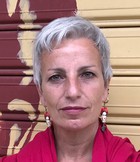
Area Politica internazionale
Competenze: comunicazione internazionale, dimensione di genere nella governance della comunicazione e del digitale, governance della comunicazione internazionale, mobilitazioni transnazionali su questioni di genere, diritti di comunicazione e delle TIC, trasformazione dei processi di governance globale, uguaglianza di genere nei media
Parole chiave: diritti umani, genere, global governance, ICT, libertà accademica, media, tecnologie digitali
Regione: Veneto
Funzione/Ruolo
Professoressa associata di Scienza Politica e Relazioni Internazionali presso il Dipartimento di Scienze Politiche, Giuridiche e Studi Internazionali (DSPGI) dell’Università di Padova
Percorso professionale
Dopo la laurea in Scienze Politiche, un dottorato in Relazioni Internazionali e un periodo di ricerca post-doc presso l’Università di Padova, inizia la sua carriera presso lo stesso Ateneo come ricercatrice nel 2001. E’ visiting professor alla McGill University di Montreal, Canada, nel 2009-2010, e all’Università di Helsinki, Finlandia, in diversi periodi dal 2016.
Presso l’Università di Padova è referente e co-coordinatrice della sezione italiana della rete internazionale Scholars at Risk; ed è membro eletto del Consiglio Direttivo del Centro di Ateneo per i saperi, le culture e le politiche di genere Elena Cornaro.
Attualmente è membro di associazioni accademiche nazionali (Società Italiana di Scienza Politica) e internazionali (European Communication Research and Education Consortium, ECREA; ORBICOM, rete delle cattedre Unesco in comunicazione; EuroMedia Research Group).
Inoltre, ricopre ruoli rilevanti nel contesto dell’International Association for Media and Communication Research (IAMCR), come membro eletto del Consiglio Internazionale, co-chair del gruppo di lavoro su Global Media Policy e componente della Task Force per la Global Alliance on Media and Gender promossa dall’Unesco (Comitato Ricerca e Politiche).
E’ anche co-chair dello UniTWIN Network on Gender Media and ICT dell’UNESCO insieme con le università RMIT (Australia) e UNAM (Messico); e membro costitutivo del gruppo di ricerca internazionale Digital Constitutionalism Network.
Risultati scientifici
I suoi principali interessi di ricerca riguardano le trasformazioni dei processi politici nel contesto globale e le implicazioni derivanti dagli sviluppi delle tecnologie digitali; con un’attenzione particolare ai temi dell’uguaglianza di genere, i diritti di comunicazione e la giustizia sociale. Fra gli sviluppi delle attività di ricerca in questi ambiti: la piattaforma digitale Mapping Global Media Policy (progetto internazionale 2006-2016) e la piattaforma risultante dal progetto Advancing Gender Equality in Media Industries (2017-in corso).
Da anni si occupa anche online learning e in particolare degli approcci di ‘virtual exchange’ che valorizzano la dimensione transculturale e transnazionale delle attività formative. Gli sviluppi concreti di queste attività sono realizzati in collaborazione con il gruppo di ricerca Next Generation Global Studies (presso SPGI, Università di Padova) e con diverse realtà internazionali.
E’ attualmente coinvolta nei seguenti progetti di ricerca e iniziative internazionali inerenti il rapporto fra genere, media e tecnologie digitali.
Advancing Gender Equality in Media Industries (AGEMI) (Finanziamento Commissione Europea, DG Justice, 2017-2019). Consorzio: University of Newcastle, Università di Padova, University of Gothenburg, International Federation of Journalists, COPEAM.
Comparing gender and media equality across the globe: a cross-national study of the qualities, causes and consequences of gender equality in and through the news media. Coordinato dalla Prof. Monika Dierf-Pierre, University of Gothenburg.
UNESCO Unitwin University Network on Gender Media and ICT. La rete promuove ricerca e formazione in ambiti di competenza Unesco, favorendo la collaborazione fra università sui temi dell’eguaglianza di genere dentro e attraverso i media. I membri della Rete provengono da Africa, Stati Arabi, Asia e Pacifico, Europa and Nord America, America Latina e Caraibi.
Global Alliance for Media and Gender. Una iniziativa promossa dall’Unesco nel 2014 che conta a oggi oltre 800 membri, fra organizzazioni dei media, sindacati, università, organizzazioni professionali. Gli obiettivi principali della GAMAG sono: promuovere l’eguaglianza di genere nei media, nelle loro strutture e contenuti; rafforzare la collaborazione regionale e internazionale, dare seguito e monitorare l’implementazione degli impegni assunti dai Paesi in occasione della Conferenza di Pechino (1995) su questi temi (Section J); sostenere l’eguaglianza di genere come priorità attraverso attività di ricerca e formazione.
Ha co-coordinato per l’Italia, insieme con Osservatorio di Pavia, diverse edizioni del progetto internazionale promosso da World Association for Christian Communication (WACC) intitolato Global Media Monitoring Project(GMMP, 2005-2010-2015-2020) sulla rappresentazione di donne e uomini nell’informazione.
Attività editoriali e pubblicazioni
Claudia Padovani è co-editor della serie Palgrave/IAMCR Global Transformations in Media and Communication Research e membro della redazione di varie riviste internazionali, fra le quali: International Communication Gazette, , Information Technology and Global Governance, Anuario ININCO. Investigaciones de la comunicaciòn, Journal of Alternative and Community Media, Continuum. Journal of Media and Cultural Studies, ComPol, Partecipazione e Conflitto.
E’ autrice di numerose pubblicazioni scientifiche, fra cui:
Padovani, C. & Ross, K. (2020) “Ideas for gender-transformative futures of education in the digital age” in Humanist Futures: Perspectives from UNESCO Chairs and UNITWIN Networks on the futures of education. Paris, UNESCO, pp. 153-160. ISBN 978-92-3-100369-1.
Padovani C, Vega Montiel A. and French L. (eds) (2019). Gender, Media and ICTs. New approaches for research, education and training. UNESCO Series on Journalism Education (outcome of a joint project of the UniTWIN Network on Gender Media and ICT, funded by the UNESCO IPDC and the Kingdom of the Netherlands). Open Access. Paris: UNESCO. ISBN: 9789231003202.
Padovani C. & Santaniello M. (eds) (2018). The International Communication Gazette. Themed issue “Digital Constitutionalism: Human Rights and Power Limitation in the Internet Eco-system”. Sage Publications. Vol 80/4. DOI: 10.1177/1748048518757114.
Padovani, C. (2018) “Gendering media policy research and communication governance” in Javnost – The Public. Journal of the European Institute for Communication and Culture, Taylor & Francis (Invited contribution to special issue for the journal 25th anniversary). Vol 25. DOI: 10.1080/13183222.2018.1423941. Accessible su: http://dx.doi.org/10.1080/13183222.2018.1423941.
Ross K. & Padovani C. (eds) (2017). Gender Equality and the Media: A Challenge for Europe. Routledge. ISBN: 978-1-315-70902-4. Paper back edition published in 2018. ISBN: 978-1-138-31980-6.
Padovani C. & Pavan E. (eds) (2017). Comunicazione politica, Quadrimestrale dell'Associazione Italiana di Comunicazione Politica. Themed issue “The Politics of Media Gender Equality. Lessons learned and struggles for change twenty years after the Beijing Fourth World Conference on Women”. Il Mulino (2/2017).
Padovani C. & Shade L. (eds) (2016). Journal of Information Policy. Themed issue “Gendering Global Media Policy: Critical Perspectives on ‘Digital Agendas’”. Pen State University Press. Accessible su: http://www.jstor.org/stable/10.5325/jinfopoli.6.issue-2016).
Padovani C. & Pavan E. (2016) “Global Governance and ICTs: Exploring online governance networks around Gender and Media” in Global Networks 16/3, Wiley Blackwell (pp. 350-371). ISSN 1470–2266.
Padovani C. (2015) “Il 2015 e l’Alleanza Globale per Media e Genere: per un’agenda di ricerca internazionale“ in Problemi dell’Informazione, vol 3/2015, Il Mulino (pp. 441-464). DOI: 10.1445/81453.
Padovani C. & Calabrese A. (eds) (2014). Communication Rights and Global Justice: Historical accounts of transnational mobilizations. (Palgrave/IAMCR series) Palgrave McMillan. ISBN: 978-1-137-37829-3.
Raboy M. & Padovani C. (2010). “Mapping Global Media Policy: concepts, frameworks, methods” in Journal of Communication, Culture and Critique, Wiley Blackwell (pp. 150-169). Themed issue on “Media Governance: New Policies for Changing Media Landscapes”. Vol III issue 2 Print ISSN: 1753-9129 Online ISSN: 1753-9137.
Padovani, C. (ed) (2004). International Communication Gazette 66 (3-4). Special issue “The World Summit on the Information Society. Setting the Communication agenda for the 21st century”. Sage Publications. Print ISSN: 1748-0485; Online ISSN: 1748-0493.
Padovani C. (2001). Comunicazione Globale. Democrazia, sovranità, culture (Global Communication. Democracy, Sovereignty, Cultures). Utet Libreria, Torino. ISBN: 887750680.

Funzione/Ruolo
Professoressa associata di Scienza Politica all'Università di Catania
Percorso professionale
Si laurea in Scienze Politiche all’Università di Catania nel 1993 e si specializza in Relazioni Internazionali e Unione Europea con una tesi di dottorato sul lobbying europeo discussa all’Università di Padova nel 1998. Come titolare della Italian Chair of Mediterranean Diplomacy and Relations, attivata presso la Mediterranean Academy of Diplomatic Studies dell’Università di Malta (1997 - 1999), nonché come Assegnista di ricerca (1999 - 2002) e Ricercatrice (2000 - 2002) presso l’Università di Catania incentra le sue attività didattiche e di ricerca sulle relazioni EuroMediterranee e il Partenariato EuroMediterraneo. Diventa professoressa associata di Scienza Politica nel 2002 e si dedica anche alla didattica in lingua inglese con il corso di Mediterranean Politics di cui è titolare ininterrottamente dal 2004. Ha erogato questo insegnamento anche a livello di Dottorato di Ricerca presso la Scuola Superiore di Catania e presso l’IMT (Lucca) e a distanza presso l’Arcadia University, Glenside (Pennsylvania, USA). Dall’a.a. 2008-2009 insegna Migration and the Mediterraneannel Master in European Studies alla LUISS. Valutatrice dell’ANVUR dal 2013. Ha fatto parte del Comitato direttivo della SISP e dell’EISA. È co-editor della rivista Global Affairs.Nel quadro della mobilità ERASMUS ha insegnato presso l’Università di Ghent, Ljubljana, Paris Est-Créteil, Bilkent ad Ankara. Tra il 2007 e il 2014 è stata Presidente del Corso di Laurea in Politica e Relazioni Internazionali (2007-2014).
Ha organizzato, oltre a sezioni tematiche a convegni nazionali e internazionali, Summer Schools, Conferenze e Seminari internazionali:
- WECCS Crash Course, Welcome to Europe, my Country, my City, my School, organized within the ERASMUS+ WECCS project,University of Catania, 10 - 12 April 2019.
- EUMedEA Crash Course, University of Catania, 2016, 2017, 2018 http://www.dsps.unict.it/eumedea/events/crash_course
- EISAConference9thPan European Conference in International Relations: The Worlds of Violence, Giardini Naxos (Sicily) 23-26 September 2015. www.paneuropeanconference.org/
- Convenorof the ‘Celebrating Europe Day’ with Enrique Baron Crespo, former EP President, within the programme ‘European Parliament to Campus’. Catania, 9 May 2015.Talk on The European Union and its Mediterranean Neighbours: new and old democracies.
- Jean Monnet IRA academic coordinator, EUDEM Conferenceon ‘Winds of Democratic Change in the Mediterranean? Actors, Processes and possible Outcomes’, 19-21 May 2011.
- Scientific responsibleof the EMUNI SUMMER SCHOOL 2009on European Policies and Economic Transition in the Mediterranean Basin,University of Catania, 12-26 July 2009.
- Annual SISP Conference, Catania, 20-22 September 2007.
Risultati scientifici
Ha partecipato a numerosi gruppi di ricerca su scala nazionale (PRIN) o internazionale (HORIZON 2020, INTAS, Jean monnet Action). Ha coordinato ricerche nel quadro dell’Azione Jean Monnet. Ha contribuito al consolidamento degli studi sulle relazioni Euro-Mediterranee a livello nazionale e internazionale attraverso didattica e ricerca. Nello specifico, ha promosso la ricerca sui processi di democratizzazione nei paesi del Medio Oriente e del Nord Africa favoriti dall’Unione Europea nel quadro dell’Azione Jean Monnet finanziata dalla Commissione Europea EUDEM, sui fenomeni migratori nel quadro della Cattedra Jean Monnet EUMedEA e dell’Horizon 2020 TRANSCRISIS. Le sue ricerche in corso vertono sulla gestione migratoria su più livelli.
Attività editoriali e pubblicazioni
Tra le sue pubblicazioni, si segnalano le monografie: L'Unione Europea "potenza divisa" nel Mediterraneo, Milano, Egea, 2012; Il lobbying europeo, Milano, Giuffré, 2000; L’Unione Europea nel sistema politico globale, Beijin, China Social Sciences Press, pp. 1-268, con Attinà Fulvio, Longo Francesca, Monteleone Carla, Rosa Paolo, 2009 (in cinese); Identità, partiti ed elezioni nell’Unione Europea, Cacucci, Bari, 1995, con Attinà Fulvio e Longo Francesca.
Ha curato: Sulle onde del Mediterraneo. Cambiamenti globali e risposte alla crisi migratoria, EGEA, Milano, 2016; Winds of Democratic Change in the Mediterranean? Processes, Actors and possible Outcomes, con Rosa Rossi e Soveria Mannelli, Rubbettino, 2012.
Di seguito una selezione delle sue pubblicazioni scientifiche più recenti:
The EU and Migration in the Mediterranean. EU Borders’ Control by Proxy,in Journal of Ethnic and Migration Studies, Special Issue edited by Valeria Bello and Sarah Leonard, in print.
L’Italia e i flussi migratori nel Mediterraneo Centrale: lo snodo libico, in Baldinetti Anna, Cassarino Mirella, Melfa Daniela (a cura di), Oltre-confine. Temi e fonti per lo studio dell’Africa, 2019, Roma, Aracne.
Libia e intervento militare. Il principio della responsabilità di proteggere nel dibattito politico italiano, con Ornella Urso,in Francesca Longo e Pierangelo Isernia (editors), La Politica Estera Italiana nel nuovo millennio, Il Mulino, Bologna, 2019, pp. 117-148.
When Responsibility to Protect ‘hits home’: The EU and the Syrian crisis, co-authored with Iole Fontana, in: ‘Third World Quarterly’, 2018, vol. 39, issue 1, pp. 1-17.
Intercultural Dialogue across the Mediterranean Troubled Waters: Challenges to the Anna Lindh Foundation,in Richard Gillespie and Frederic Volpi (editors), Handbook of Mediterranean PoliticsLondon/New York, Routledge, 2018, pp. 394-407.
The EU and Migration in the Mediterranean. Entrapped between the humanitarian approach and border security, in Moccia Luigi and Pop Lia (eds), Migrants and Refugees Across Europe, European University Press, Boschum (Germany), 2017, pp. 139-168.
La difficile transizione democratica nel Vicinato Meridionale. Il ruolo dell’Unione Europea tra persistenza e cambiamento, in Marco Mascia (a cura di), Verso un sistema partitico europeo transnazionale, Cacucci, Bari, 2014, pp. 169-180.
L’Unione Europea nel Mediterraneo: oltre la primavera araba, in Guerino D'Ignazio, Nicola Fiorita, Silvio Gambino, Francesco Raniolo, Alberto Ventura (a cura di), Transizioni e democrazia nei paesi del Mediterraneo e del vicino oriente,Edizioni Periferia, Cosenza, 2014, pp. 287-309.
Riconoscimenti e premi
Membership Onoraria dell’EISA (European International Studies Association) dal 2017.
Titolare della Cattedra Jean Monnet EUMedEA finanziata dalla Commissione europea (2015-2018)
Coordinatore Accademico dell’attività di informazione e ricerca finanziata dalla Commissione Europea Jean Monnet Information and Research Activity on EU Foreign Policy and Democracy Promotion (EUDEM)(2010-2011)
Responsabile Scientifico del Modulo Europeo Jean Monnet finanziato dalla Commissione EuropeaJean Monnet Module on EU Roles in the International Governance(2005-2010)
International Visitor Leadership Program, Washington/New York, giugno 2005, programma di formazione organizzato e finanziato dall’AMbasciata Americana a Roma insieme al Dipartimento di Stato USA.
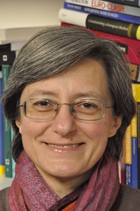
Funzione/Ruolo
Professoressa di Scienza Politica all' Università di Trento
Percorso professionale
Ha conseguito un BA/MA quinquennale in Discipline Economiche e Sociali (DES) presso l’Università Bocconi (1985). Dopo due anni di consulenza aziendale presso un gruppo industriale e di ricerche presso il Dipartimento di Politica industriale dell’Università Bocconi, è stata ammessa al dottorato in Political Science del Massachusetts Institute of Technology (MIT), Cambridge, MA (USA), che ha completato nel 1996. È diventata Amanuensis (Assistant professor), poi Førsteamanuensis (Associate Professor) in Politica Comparata presso il dipartimento di Politikkvitenskap (Political Science) dell’Università di Tromsø (Norvegia) (1994-99). Ha trascorso due anni come Jean Monnet Fellow presso l’Istituto Universitario Europeo (EUI) di Fiesole (Italia) (1999-2000) ed è stata chiamata come Professoressa Associata di Scienza Politica presso l’Università degli Studi di Trento nel 2001. Dal 2010 al 2011 è stata Professorin zu Europäische Politik (European Politics) all’Università di Innsbruck (Austria), ma è tornata come Professoressa ordinaria di Scienza Politica all’Università di Trento dove tuttora ricopre quel ruolo. Mantiene forti legami con l’accademia norvegese, essendo stata professoressa associata di Governance all’Università di Agder (Kristiansand) (2014-18) e ricercatrice associata presso l’ARENA Centre for European Studies dell’Università di Oslo dal 2019. Ha servito come presidente del Conference Group on Italian Politics and Society (CONGRIPS), sezione dell’American Political Science Association (APSA) (2007-09), e come membro poi Chair dell’Executive Committee dello European Consortium for Political Research (ECPR) (2009-15), prima donna a ricoprire questo ruolo, così come quello di Presidente della Società Italiana di Scienza Politica (SISP) (2015-18). E' stata membro del comitato esecutivo dell’International Political Science Association (IPSA) (2018-21).
Ha coordinato corsi di BA e di MA in Studi internazionali presso l’Università di Trento, è stata membro della VQR (Valutazione della Qualità della Ricerca dell’Anvur) (2014-18) e membro dell’ASN (Abilitazione Scientifica Nazionale del MIUR per il settore Scienza Politica, 14/A2) (2018-20).
Risultati scientifici
La tesi di dottorato e primo interesse scientifico è stato lo sviluppo economico di quattro aree del Mezzogiorno d’Italia con attenzione particolare al ruolo svolto dalle élite politiche locali nel promuovere o ostacolare lo sviluppo. Da qui sono derivati interessi paralleli e duraturi per lo studio del clientelismo e del governo locale, da un lato, e delle politiche di sviluppo e più in generale della political economy, dall’altro. Dalle politiche di sviluppo per il Mezzogiorno alla politica di Coesione europea il passo è stato breve e da qui interessarsi al ruolo delle regioni, e del Comitato delle Regioni, nella democrazia europea il passaggio è stato altrettanto logico e naturale. Dall’interesse per la politica europea è derivato poi un interesse particolare per la multilevel governance, tema al quale ha dedicato analisi approfondite e innovative. Più recentemente, lo studio comparato della performance di Italia e Germania durante la crisi dell’euro e i problemi della democrazia europea sono emersi come fuochi d’indagine privilegiata.
Attività editoriali e pubblicazioni
[2001] Piattoni S. ed, Clientelism, Interests and Democratic Representation: The European Experience in Historical and Comparative Perspective, New York: Cambridge University Press. [2003] Bukowski J., Piattoni S., Smyrl M. eds, Between Europeanization and Local Societies. The Space for Territorial Governance, Lanham, MD Rowman & Littlefield.
[2005] Piattoni S., Il clientelismo. L’Italia in prospettiva comparata, Roma: Carocci.
[2010] Piattoni S. The Theory of Multilevel Governance. Conceptual, Empirical and Normative Challenges, Oxford, UK: Oxford University Press.
[2011] Piattoni, S., "The problematic coexistence of functional and territorial representation in the EU", Journal of European Integration, 33 (4): 369-384.
[2015] Piattoni S., Schönlau J., Shaping Policy from Below. EU Democracy and the Committee of the Regions, Cheltenham, UK: Edward Elgar.
[2015] Piattoni S. ed, The European Union: Democratic Principles and Institutional Architectures in Times of Crisis, Oxford, UK: Oxford University Press.
[2016] Piattoni S., Polverari L. eds, Handbook on Cohesion Policy in the EU, Cheltenham, UK: Edward Elgar.
[2017] Piattoni S., “The European Union between Intergovernmentalism and 'Shared and Responsible Sovereignty': The Haptic Potential of EMU's Institutional Architecture (The Leonard Schapiro Lecture 2016)”, Government and Opposition, 52 (3): 385-411.
[2019] Papadopoulos Y., Piattoni S., “The European Semester: Democratic Weaknesses as Limits to Learning”, European Policy Analysis, 2019 (1): 58-79.
[2021] Piattoni S., Notermans T., "Italy and Germany: Incompatible Varieties of Europe or Dissimilar Twins?", German Politics, 30 (3): 319-339.
[2022] Notermans T., Piattoni S. eds, Italy and Germany, Incompatible Varieties of Europe? London, UK: Routledge.
Riconoscimenti e premi
Borsa di studio Villa Vigoni per il dialogo socio-scientifico italo-tedesco: "E la nave va. Prospettive delle scienze sociali su Germania, Italia e Unione Europea dopo un decennio di crisi", 2019.
Borsa di studio Villa Vigoni per il dialogo socio-scientifico italo-tedesco: "Amici come prima? Prospettive delle scienze sociali su Germania, Italia e Unione europea in tempo di crisi", 2017.
Borsa di studio Jean Monnet, Centro Robert Schuman per la ricerca avanzata, Istituto Universitario Europeo, Firenze, 1999-2001.
Borsa di studio per lo studio del tedesco, Centro di studi europei "Minda de Gunzburg", Università di Harvard, estate 1991.
Borsa di studio per tesi di laurea, Fondazione MacArthur, 1991.
Borsa di studio per tesi di laurea, Consiglio per la ricerca sulle scienze sociali, 1990.
Medaglia d'oro come "Miglior studente 1985-86", Università Bocconi, Milano, settembre 1986.
Stage AIESEC in Management Games, Politecnico di Breslavia (Polonia), estate 1983.

Area Politica internazionale
Competenze: storia dei frozen conflicts, storia della politica estera russa, storia della politica estera sovietica, storia dell'integrazione europea, storia dello spazio post-sovietico
Parole chiave: Comunità Europea, Federazione Russa, frozen conflicts, Unione Europea, URSS
Regione: Liguria
Funzione/Ruolo
Professoressa associata in Storia delle relazioni internazionali presso il Dipartimento di Scienze Politiche e Internazionali dell’Università degli Studi di Genova.
Percorso professionale
Dopo la laurea in Scienze Politiche, indirizzo politico internazionale (Università di Genova), consegue un Master in Logistica, un Master in Comunicazione Pubblica e Politica e un Dottorato in Storia dell’Europa, del federalismo e dell’unità europea presso l’Università di Pavia. Negli anni del dottorato svolge attività di ricerca presso la Facoltà di Storia dell’Università Lomonosov di Mosca. Inizia la sua carriera accademica come assegnista di ricerca all’Università di Trento e di Genova, dove oggi è professoressa associata.
Risultati scientifici
Lara Piccado è membro dell’Associazione universitaria di Studi europei (AUSE), della quale è stata Segretaria generale aggiunta per oltre un decennio e per la quale ha fatto parte del Coordination Team di diversi progetti europei (Azione Jean Monnet). Dal 2006 al 2009 è stata titolare del modulo europeo Jean Monnet in “Storia del partiti europei e dei movimenti per l’unità europea”. Svolge docenze presso il Comando per la Formazione e Scuola di Applicazione dell’Esercito, Post-Conflict Operations Study Centre. È stata Visiting Professor presso la Evropejskij Universitet (European University) di San Pietroburgo per un ciclo di conferenze su History of the European Integration.
Partecipa regolarmente a convegni nazionali e internazionali, è vicedirettrice della rivista «De Europa» dell’Università di Torino e membro del Centro interuniversitario di ricerca sulla storia del federalismo e dell’integrazione europea (CRIE).
Attività editoriali e pubblicazioni
[Monografie]
(2020) Piccardo L. Dalla patria all’umanità. L’Europa di Giuseppe Mazzini, Bologna, il Mulino.
(2017) Piccardo L. Ai confini dell’Europa. Piccola storia della Crimea contesa, Bari, Cacucci.
(2012) Piccardo L. Agli esordi dell’integrazione europea. Il punto di vista sovietico nel periodo staliniano, Pavia, Interregional Jean Monnet Centre of Excellence.
(2007) Piccardo L. L’Europa del nuovo millennio. Storia del quinto ampliamento (1989-2007) Bologna, CLUEB.
[Contributi su libro]
(2020) Piccardo L. Dall’Europa all’Africa: il COMECON tra dimensione regionale e globale, in L’organizzazione internazionale tra universalismo e regionalismo, a cura di Giovanni Finizio, Milano, Cedam: 115-129.
(2019) Piccardo L. State-Euroscepticism First! The Soviet Union against Hypotheses and Moments of the European Unity, in Euroscepticisms. Resistance and Opposition to the European Community/European Union, a cura di D. Preda, G. Levi, Bologna, il Mulino: 565-588.
(2017) Piccardo L. Three Lessons from the Past: Monetary Unions in the 19th Century Europe, in The History of European Monetary Union. Comparing Strategies amidst Prospects for Integration and National Resistance, a cura di Daniela Preda, Bruxelles, Pie Peter Lang: 21-36.
(2015) Piccardo L. Le relazioni tra Unione Europea e Federazione russa: collaborazione o competizione?, in L’Unione Europea tra istituzioni e opinione pubblica, a cura di Marinella Belluati, Paolo Caraffini, Roma, Carocci: 140-150.
(2015) Piccardo L. La perestrojka in politica estera. Gorbacëv e l’integrazione europea, in L’Italia e l’Europa negli anni Ottanta. Storia, politica, cultura, a cura di L. Piccardo, Milano, Franco Angeli: 13-32.
[Articoli in riviste]
(2016) Piccardo L. On the Relations between Russia and Europe, «Il Politico», 241: 29-51.
(2015) Piccardo L. The Historical Dimension of the EU-Russia Relations, «The European Union Review», 20: 33-52.
(2012) Piccardo L. I rapporti tra COMECON e CEE: dalla guerra fredda al mutuo riconoscimento, «La Cittadinanza Europea», 2: 135-152.
Riconoscimenti e premi
Nel 2012 vince il Premio nazionale "Spadolini Nuova Antologia" conferitole per il volume Risorgimento e pedagogia a Genova: il “caso” Emanuele Rossi.
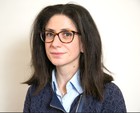
Funzione/Ruolo
Senior Research Fellow presso l’Overseas Development Institute (Londra, Regno Unito)
Percorso professionale
Dopo aver conseguito la laurea in Economia e Commercio (Universita’ di Padova) nel 2003, trascorso un periodo di studio presso il Dipartimento di Economia della Essex University (Regno Unito) e completato la laura specialistica in Integrazione Economica Internazionale (Universita’ di Pavia) nel 2005, interprende gli studi di dottorato in Economia Politica e Finanza Pubblica (Universita’ di Pavia), che termina nel 2009. La tesi ha analizzato diversi aspetti dei problemi della sostenibilita’ del debito estero nei paesi a basso reddito. Durante il periodo degli studi di dottorato, ha lavorato come consulente sui temi del debito estero presso l’Economic Policy and Debt Department delle Banca Mondiale e ha trascorso un periodo di studi come Visiting Scholar presso la Notre Dame University (Stati Uniti). Dal 2008 al 2011 ha lavorato come Economista presso il Centro di Sviluppo dell’OCSE, trattando di temi legati alla sostenibilita’ del debito, aiuto pubblico allo sviluppo e macroeconomia dello sviluppo nei paesi emergenti e in Africa sub-Sahariana. Dal 2011 Annalisa lavora presso l’Overseas Development Institute (ODI) di Londra, una delle piu’ prestigiose think-tank nell’ambito dello sviluppo, dove conduce e coordina programmi di ricerca e di consulenza per governi e organizzazioni internazionali sui temi della cooperazione internazionale e dell’aiuto pubblico allo sviluppo.
Risultati scientifici
Annalisa Prizzon ha condotto e coordinato progetti di ricerca e consulenza in collaborazione con Ministeri degli Affari Esteri e agenzie di cooperazione allo sviluppo in Europa, Africa e Asia, organizzazioni internazionali, banche multilaterali di sviluppo e organizzazioni della societa’ civile. Ha ampia esperienza sul campo, in particolare in Africa (Botswana, Egitto, Etiopia, Ghana, Kenya, Liberia, Malawi, Senegal, Zambia), America Latina (Cile, Messico) e Asia (Fiji, Indonesia, Mongolia, Papua Nuova Guinea, Vietnam).
Ha pubblicato estensivamente sui temi della cooperazione internazionale, sull’allocazione ed efficacia del finanziamento e dell’aiuto pubblico allo sviluppo, sulle implicazioni del debito estero per i Paesi Africani e sull’architettura e operazioni delle banche di sviluppo multilaterali.
Attività editoriali e pubblicazioni
Annalisa Prizzon e’ referee di European Journal of Development Research, The Review of International Organizations, Development Policy Review, World Economy, Oxford Development Studies, Sustainability, Journal of Pacific Studies.
Ha contributo a diversi policy paper sui temi della cooperazione allo sviluppo e peer-reviewed journals ad esempio:
[2018] Mustapha S, Prizzon A, Debt relief initiatives 20 years on and implications of the new development finance landscape, in Third World Thematics: A TWQ Journal.
[2018] Engen L, Prizzon A, A guide on multilateral development banks, Overseas Development Institute.
[2017] Bhattacharya A, Kharas H, Plant M, Prizzon A, The New Global Agenda and the Future of the MDB System,Paper preparato per il G20 Eminent Persons Group meeting in Frankfurt am Main, 4 Dicembre 2017, Brookings Institute, Centre for Global Development, Overseas Development Institute.
[2017] Prizzon A, et al. (eds.), Six recommendations for reforming multilateral development banks: an essay series,ODI report, December.
[2017] Pickering, J, Davies R, Prizzon A, Development co-operation: New perspectives from developing countries – Introduction for special issue of Development Policy Review, in Development Policy Review, 35, O1-O9.
[2017] Prizzon A, Greenhill R, Mustapha S, An ‘age of choice’ for external development finance? Evidence from country case studies, in Development Policy Review, 35, O29-O45.
[2015] Schmaljohann M, Prizzon A, Age of choice: How partner countries are managing the new development assistance landscape – The cases of Fiji, Papua New Guinea, Timor-Leste and Vanuatu, in Asia and Pacific Policy Studies, Australian National University. Volume 2, Issue 3, pages 643–651, September.
[2015] Mold A, Prizzon A, Commodity prices and export performance in Sub-Saharan African countries,in Morrissey O, Lopez R, Sharma K (eds.) “Handbook On Trade And Development”, Edward Elgar Publishing.
[2013] Mold A, Prizzon A, South-South trade liberalization as a way out of the financial crisis? An exploratory CGE simulation, in Journal of International Development, vol. 25(8), pages 1071-1084, November.
[2013] Prizzon A, Vaggi G, On the sustainability of external debt: Is debt relief enough?, in Cambridge Journal of Economics, December.
[2012] Mold A, Prizzon A, Aid flows in times of crisis, in Alonso JA, Ocampo JA (eds.) “Development Cooperation in Times of Crisis, Initiative for Policy Dialogue”, Columbia University Press [Spanish version in Fondo de Cultura Económica].
Riconoscimenti e premi
Annalisa Prizzon è academic advisor di Jubilee Debt Campaign e membro del World Economic Forum Council on the Future on Infrastructure.
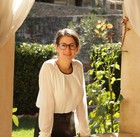
Area Politica internazionale
Competenze: analisi dei mercati energetici, geopolitica dell’energia
Parole chiave: decarbonizzazione, dipendenza energetica europea, guerra dei gasdotti, interconnessioni elettriche, O&G nel Mediterraneo Orientale, scenari energetici e investimenti, sicurezza degli approvvigionamenti, transizione energetica e sostenibilità
Regione: Emilia-Romagna
Funzione/Ruolo
Analista de mercati energetici presso la società di ricerca e consulenza RIE (Ricerche Industriali ed Energetiche) di Bologna; associate research fellow sicurezza energetica presso ISPI (Istituto di Politica Internazionale)
Percorso professionale
Chiara Proietti Silvestri si forma presso la Facoltà di Scienze Politiche “R. Ruffilli” (Forlì Campus) dove consegue nel 2011 la laurea magistrale cum laude in Scienze Internazionali e Diplomatiche. Nello stesso anno, entra nel team di ricerca del RIE di Bologna dove tuttora lavora come analista di politica ed economia dell’energia. Nel 2015 inizia a collaborare con ISPI alla stesura dei rapporti sulla sicurezza energetica dell’Osservatorio di politica internazionale del Parlamento Italiano. La collaborazione con ISPI continua anche nel ramo della didattica e nel 2017 Chiara diventa Associate Research Fellow Sicurezza Energetica. Ama continuare a studiare ritenendo che l’apprendimento vada continuamente stimolato; per questo, nel corso degli anni ha seguito corsi di perfezionamento sul diritto dell’energia, corsi di economia industriale, econometria, analisi di certificazione energetica.
Risultati scientifici
Nell’ambito della sua attività lavorativa presso il RIE, Proietti Silvestri segue diverse linee di ricerca, tra cui lo sviluppo delle risorse di petrolio e gas a livello nazionale e lo sviluppo dei distretti energetici in Italia; tale filone ha portato alla redazione di diversi paper policy-oriented sul tema e alla realizzazione di un libro dal titolo “Coesistenza tra Idrocarburi e Agricoltura, Pesca e Turismo (APT) in Italia, per il quale è stata co-autrice di alcuni capitoli. Di recente, ha coordinato un progetto di ricerca su trasporti pesanti e mobilità sostenibile.
Attività editoriali e pubblicazioni
Fa parte del Comitato di Redazione della Rivista “Energia”, rivista trimestrale sui problemi dell’energia dal 1980. Ha, inoltre, pubblicato numerosi articoli in testate specializzate, alcuni dei quali sono riportati qui di seguito:
[2019] Proietti Silvestri C. I numeri dell’economia circolare in Italia, Gestore Mercati Energetici
[2018] Proietti Silvestri C. Anche litio e cobalto nelle statistiche dell’energia, Gestore Mercati Energetici
[2018] Proietti Silvestri C. La finanza verde a 10 anni dal primo Green bond, Gestore Mercati Energetici
[2018] Proietti Silvestri C. Turkish Stream, gli esiti del divide et impera russo, Formiche
[2016] Proietti Silvestri C. Gas, perno della cooperazione nel Mediterraneo orientale, Affari Internazionali
[2015] Gugliotta A., Proietti Silvestri C. Shale gas e prezzi oil: cosa cambia?Gestore Mercati Energetici
[2015] Proietti Silvestri C. Egitto a tutto gas: nuovi equilibri energetici nel Mediterraneo Orientale,Osservatorio di Politica Internazionale del Senato della Repubblica
[2015] Proietti Silvestri C. Esplorazione: nuovo dinamismo nel Mar Adriatico, Affari Internazionali
[2014] Clò F., Proietti Silvestri C. I distretti petroliferi in Emilia Romagna: realtà da indagare e valorizzare, Rivista “Energia”
[2013] Proietti Silvestri C. Cipro: tra sviluppo energetico e tensioni politiche, The Risky Shift
[2013] Proietti Silvestri C. Stati Uniti: le implicazioni internazionali di una politica energetica “non convenzionale, The Risky Shift
[2013] Proietti Silvestri C. L’onda siriana sul petrolio, Affari Internazionali
[2012] Proietti Silvestri C. Sicurezza Energetica: Egitto e Israele alla battaglia del gas, Affari Internazionali
[2011] Proietti Silvestri C. Non Proliferazione: Giro di vite sul commercio nucleare, Affari Internazionali
[2011] Proietti Silvestri C. Sicurezza nucleare: insegnamenti dopo Fukushima, Rivista Energia
[2009] Proietti Silvestri C. Russia: Il war game simulato contro la Polonia inquieta l'Alleanza Atlantica, Equilibri.

Funzione/Ruolo
Ricercatrice di Sociologia presso la Facoltà di Scienze Politiche e Sociali dell'Università Cattolica del Sacro Cuore di Milano e Ricercatrice presso la Fondazione ISMU - Iniziative e Studi sulla Multietnicità
Percorso professionale
Laureata con lode in Scienze delle relazioni internazionali e dell’integrazione europea presso l’Università Cattolica del Sacro Cuore di Milano, ha conseguito il Dottorato di Ricerca in Sociologia e Metodologia della Ricerca Sociale (Doctor Europeaus) presso la medesima istituzione nel 2015 con una tesi sui processi di integrazione dei migranti in Svezia.
Dal 2008 collabora con la Fondazione ISMU, per la quale ha partecipato e/o coordinato le attività di gruppi di ricerca caratterizzati da collaborazioni a livello nazionale o internazionale sui seguenti temi: processi di integrazione dei migranti, politiche migratorie, discriminazione etnico-razziale, processi di inclusione socio-economica di Rom e Sinti.
Da gennaio 2017 a dicembre 2018 è stata Post-Doctoral Research Fellowpresso il Dipartimento di Sociologia e Ricerca Sociale dell’Università Bicocca di Milano. Nell’ambito di tale collaborazione ha svolto una ricerca empirica sulla partecipazione politica delle seconde generazioni in Italia che ha coinvolto numerosi giovani attivisti in Italia.
Dal 2017 svolge servizi di consulenza nel campo della ricerca a supporto delle attività svolte dal Ministero dell'Interno (Dipartimento Libertà Civili e Immigrazione — Direzione Centrale per le Politiche dell'Immigrazione e dell'Asilo nelle attività) in qualità di National Contact Point (NCP).
Dal 2019 è Ricercatrice per il settore scientifico-disciplinare SPS/07 (Sociologia generale) presso la Facoltà di Scienze Politiche e Sociali dell'Università Cattolica del Sacro Cuore di Milano.
Per l’anno accademico 2019/2020 insegna Sociologia generale e Metodologia della Ricerca Sociale presso l’Università Cattolica del Sacro Cuore di Milano. É membro del Consiglio Scientifico della Sezione di Metodologia dell’AIS (Associazione Italiana di Sociologia) (triennio 2019-2021).
È referee per diverse riviste scientifiche italiane. Ha presentato gli esiti delle sue ricerche in occasioni di diversi convegni nazionali e internazionali (Canada, Israele, Uruguay, Svezia, Polonia, Finlandia, UK).
Risultati scientifici
I suoi principali interessi di ricerca e la sua produzione scientifica riguardano principalmente tre filoni: le politiche e i processi di integrazione dei migranti in Italia e in Europa, con una particolare attenzione al caso svedese; l’inclusione socio-economica dei Rom nel contesto italiano; l’attivismo e la partecipazione politica delle seconde generazioni in Italia.
Attività editoriali e pubblicazioni
Monografia:
[2018] Riniolo V., L’integrazione dei migranti in Svezia. Tra sfide e opportunità, FrancoAngeli, Milano.
Articoli:
[2019] Riniolo V., Second-generation Youths: Experiences of Political Participation in Italy, in Studi di Sociologia (in fase di pubblicazione)
[2018] Riniolo V., Codini E., L’attivismo delle seconde generazioni e la riforma della legge sulla cittadinanza in Italia, in Visioni LatinoAmericane 18 (2018), pp. 9-25.
[2015] Riniolo V., Marcaletti F., Migrant trade union membership, employment status and citizenship practices. A comparison of different European countries, in Mondi Migranti, N.1, pp. 127-149.
[2013] Riniolo V., Sul concetto di coesione sociale oggi, in Studi di Sociologia, 3-4, pp. 355-364.
[2012] Riniolo V., L’immigrazione femminile sudamericana in Italia, in Visioni Latinoamericane, n. 6, pp. 91-98.
[2011] Riniolo V., Marcaletti F., S. Pozzi S., Percorsi di empowerment e integrazione lavorativa di Rom e Sinti: l’esperienza del progetto Valore Lavoro, in Autonomie Locali e Servizi Sociali, n. 2, pp. 287-300.
[2015] Riniolo V., Marcaletti F., A Participatory Governance Model Towards the Inclusion of Ethnic Minorities. An Action Research Experience in Italy, in Revue Interventions Èconomiques, No. 53/2015.
[2012] Riniolo V., Marcaletti F., Active participation of Roma. An experience of participatory planning toward labour integration, in European Roma Rights Journal, pp. 59-65.
Saggi in volumi:
[2019] Riniolo V., Immigration and Housing Policies in Sweden, in Alietti, A., Agustoni, A. (eds.), Housing Policies, Migrants and Integration. Reflections on Italian and European cases, Aracne Editrice.
[2018] Riniolo V., Lovison M., I piani di integrazione: la gestione dell’immigrazione in Europa e in Italia, inVentitreesimo Rapporto sulle migrazioni 2017, FrancoAngeli, Milano, pp. 247-262.
[2018] Riniolo V., Lovison M., The Integration Plans: the migration governance in Europe and Italy, The Twenty-third Italian Report on Migrations 2017, pp. 111-120.
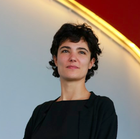
Area Politica internazionale
Competenze: governo delle società, movimenti di protesta, politica interna ed estera dell'Iran, trasformazione dello stato-nazione in Medio Oriente e Nord Africa
Parole chiave: autoritarismo, democrazia, Iran, Medio Oriente, movimenti sociali, società civile
Regione: ESTERO
Funzione/Ruolo
Professoressa di Politica del Medio Oriene e Relazioni internazionali alla School of Law and Government della Dublin City University.
Percorso professionale
Dopo la laurea in Scienze Politiche presso l’Università di Torino, consegue il titolo di Dottoressa di Ricerca in Scienze Sociali e Politiche presso l'Università di Siena e un Master in Scienze Politiche e Relazioni Internazionali presso l'Università di Torino. Insegna presso l'Università Cattolica di Milano tra il 2009 e il 2011, è ricercatrice presso l'Università di Torino nel 2010 e 2011 e raggiunge la Dublin City University come postdoctoral fellow nel 2011, mantenendo tale qualifica fino al 2013. È attualmente Assistant professor di politica del Medio Oriente e relazioni internazionali e ricopre incarichi di insegnamento presso l'Università Boğaziçi, Université Laval, Université di Montreal (UdeM), Università di Palermo e l’Ecole de management de Normadie.
Risultati scientifici
Fa parte dell’Advisory board del Cambridge Centre for Palestine Studies e del progetto di ricerca “What works? Sharing best practices in how civil society organisations use the internet in organising and building for socio-economic rights” finanziato dall’Irish Research Council e diretto da Aileen O'Carroll (Maynooth University) and David Landy (Trinity College Dublin).
Coordina lo Scambio Erasmus Plus International Credit Mobility (ICM) con Bethlehem University e fa parte della rete di formazione dottorale finanziata dall'ITN-Marie Curie “Around the Caspian”.
È Segretaria Generale della Società Italiana per gli Studi del Medio Oriente (SeSaMO) tra il 2013 e il 2016. Prima di raggiungere DCU, ha collaborato con diverse ONG nel campo dell'assistenza ai richiedenti asilo di origine iraniana e afgana in Italia e Turchia.
I suoi interessi di ricerca si concentrano sul governo delle società in Medio Oriente e Nord Africa in una prospettiva comparata e sulle mobilitazioni sociali e politiche. Lavora anche sulle migrazioni da e verso la regione. Pubblica su questi argomenti in diverse lingue (persiano, inglese, francese, spagnolo, italiano). Ha anche lavorato e pubblicato sui temi della precarietà nel mondo accademico e della libertà accademica in Medio Oriente e in Nord Africa, nell'Unione Europea e negli Stati Uniti. È coinvolta in attività di divulgazione non accademica, coinvolgendo sia i media che l'opinione pubblica.
Il suo lavoro è costruito su due “modi” principali di guardare ai fenomeni socio-politici. Il primo è lo studio del come le società sono governate attraverso strumenti quali l’ideologia, la violenza politica, le politiche pubbliche. In particolare, sta lavorando sull’ideologia riformista come modo di governo teso a produrre non solamente ordine pubblico ma anche a delimitare gli spazi di partecipazione politica – e sul come questo progetto di disciplinamento incontri resistenza. Ha completato una monografia (in corso di stampa per Palgrave McMillan) su questo argomento, intitolata Political Participation in Iran: From Khatami to the Green Movement. Il secondo approccio si concentra sulla comparazione tra modelli di governo nei regimi democratici e autoritari. Testando la comparabilità di due regimi che normalmente vengono considerati “non comparabili”, si mette in discussione l’autonomia del politico rispetto a ideologia e gestione delle risorse.
Altri ambiti restano di grande interesse per il suo lavoro, come il governo delle migrazioni, la precarietà lavorativa, la libertà accademica.
Attività editoriali e pubblicazioni
Paola Rivetti ha all’attivo numerose pubblicazioni scientifiche. L’elenco completo e aggiornato è disponibile qui: DCU_Pubblicazioni di Paola Rivetti.
Ha inoltre firmato diversi articoli di analisi politica per organi di stampa, fra cui Expresso Portugal, RTE News, News Talk Radio, Ghalamro, Presidential Power, LeftEast, QCode Mag, il Lavoro Culturale, Zapruder, Irish Humanities Association, Effimera, Global.
Riconoscimenti e premi
2018: Premio “Researcher of the Year” (categoria: early-career) conferito dall’Irish Research Council.
2018: Premio “Excellence in Research” conferito dal rettore della Dublin City University (categoria: early-career).
2006: Premio Optime, Camera di commercio di Torino.
2005/06: Premio dell’Università di Torino per la migliore tesi di Laurea (specialistica) in Scienze politiche dell’anno.
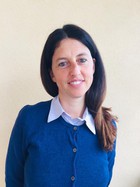
Funzione/Ruolo
Docente a contratto di due laboratori di Cooperazione allo sviluppo nazionale e internazionale presso l’Università degli Studi di Milano-Bicocca, Dipartimento di Sociologia, e Cultrice della materia Storia e Istituzioni dei paesi islamici presso l’Università degli Studi di Milano, Dipartimento di Studi internazionali, giuridici e storico-politici
Percorso professionale
Dopo la laurea in Storia conseguita cum laude presso l’Università degli Studi di Milano con una tesi sulla Tunisia di Ben Ali (2005), prosegue la formazione accademica con un master sul mondo arabo-musulmano presso la Université Aix-Marseille (Aix-en-Provence, 2006) e quindi presso la facoltà di Scienze Politiche dell’Università degli Studi di Milano con un dottorato di ricerca in Storia Internazionale (2010). In quel periodo comincia la sua collaborazione con il prof. Gian Paolo Calchi Novati, insigne africanista dell’Università degli Studi di Pavia, che continuerà sino alla sua scomparsa (2017). Svolgeranno insieme brevi progetti di ricerca sulla politica estera dell’Italia verso il Nord Africa (per il Centro Studi per l’Asia e l’Oriente, Roma 2013-2014), sulle relazioni UE-Nigeria (report ISPI, Milano 2014) e UE-Israele (numero speciale de Il Ponte, Firenze 2015), attività di docenza e pubblicazioni. Nel 2012 è stata tutor e docente del corso “MediOrienti. Attori, dinamiche, prospettive” organizzato presso la Fondazione Collegio delle Università milanesi. Nel 2014 ha collaborato con la Fondazione Eni Enrico Mattei (FEEM, Milano) per l’organizzazione della Summer School all’interno del progetto “Economy and Society” e nel biennio 2014-2015 ha partecipato alla ricerca “Conoscere il meticciato-governare il cambiamento” della Fondazione Oasis (Venezia, Milano). Dal 2014 è docente presso l’Università degli Studi di Milano-Bicocca di un laboratorio sulla cooperazione nazionale e internazionale allo sviluppo (corso di laurea in Sociologia) che coinvolge direttamente in aula organizzazioni no profit e che nel 2017 è stato istituito anche nel corso di laurea in Scienze dell’organizzazione. Dal 2017 è cultrice della materia presso la cattedra di Storia e istituzioni dei paesi islamici, ruolo già in precedenza ricoperto presso le cattedre di Storia e istituzioni dell’Africa (2011-2014) e di Storia delle Relazioni Internazionali (2006-2007) dell’Università degli Studi di Milano.
Risultati scientifici
Si occupa dal 2009 di storia contemporanea algerina. La sua ricerca di dottorato svoltasi tra gli archivi algerini e militari francesi e poi pubblicata per Mimesis edizioni (2012) si è inserita nel trend emergente di studi sull’internazionalizzazione della Guerra d’Algeria (1954-1962). I suoi filoni di ricerca riguardano: la storia politica istituzionale algerina dall’epoca coloniale a oggi, con particolare riferimento alle dinamiche tra forze politiche algerine e all’uso dei nazionalismi; la storia regionale nordafricana, intesa e analizzata come un’area in cui i cinque paesi (Marocco, Algeria, Tunisia, Libia ed Egitto) hanno vissuto fasi storiche comuni dominate da ideologie transnazionali declinate localmente. Ha curato l’aggiornamento bibliografico e nei contenuti (riedizione del 2018) del rinomato testo sulla storia dell’Algeria dall’indipendenza in poi di Calchi Novati per Bompiani per cui ha anche scritto una sintesi divulgativo-scientifica di storia regionale del Nord Africa (2019). Tiene lezioni e seminari sulla storia contemporanea e attualità dell’Algeria, del Nord Africa e delle relazioni euro-mediterranee presso Università, Centri Studi e Think Tank ed è chiamata a intervenire come ospite da emittenti radio e testate giornalistiche. Partecipa a convegni e simposi accademici, conciliando l’attività di ricerca con quella divulgativo-scientifica.
Attività editoriali e pubblicazioni
[2019] Roggero C., Storia del Nord Africa indipendente. Tra imperialismi, nazionalismi e autoritarismi, Bompiani, Milano.
[2019] Roggero C., Il popolo e l’esercito, i due fronti della storia contemporanea algerina, Il Ponte, anno LXXV, n. 3, maggio-giugno 2019.
[2018] Roggero C., Calchi Novati, G.P., Storia dell’Algeria indipendente. Dalla guerra di liberazione a Bouteflika, Bompiani, Milano.
[2016] Roggero C., Equilibrismi europei tra solidarietà e sicurezza: la sfida delle migrazioni, in Pin A. e Pellegrino C., (eds.), Europa e Islam: attualità di una relazione, Marsilio e-book, Venezia.
[2016] Roggero C., Parabole di conversione. Viaggio insolito attraverso la secolarizzazione, in Salmeri G., (ed.), Troppa religione o troppo poca? Cristiani e musulmani alla prova della secolarizzazione, Marsilio e-book, Venezia 2016.
[2016] Roggero C., Algerian Tightrope: a Balancing Exercise on the Brink of a Crisis, in IEMed Mediterranean Yearbook 2016, European Institute of the Mediterranean, Barcelona.
[2015] Roggero C., L’Unione europea tra scelte e non scelte, in Calchi Novati, G.P. e Roggero C.(eds.), La questione israeliana, numero speciale de Il Ponte, anno LXXI nn. 11-12, novembre-dicembre 2015.
[2015] Roggero C., Sahara, nucleo del disordine. Dalla Libia alla costa atlantica(Sahara, Heart of the Disorder. From Libya to the Atlantic Coast), in Pilati, A, Sapelli G., (eds.), Il nuovo disordine internazionale. Conflitti politici, cambiamenti tecnologici ed evoluzioni strategiche, Centro Studi Fondazione Magna Carta-Osservatorio Politico.
[2015] Roggero C., Lo Stato islamico tra realtà e utopia. Nord Africa e modelli globali,in Plebani, A., Diez, M., (eds.), La galassia fondamentalista. Tra jihad armato e partecipazione politica, e-book Marsilio, Venezia.
[2015] Roggero C., Riconoscersi cittadini. Per una nuova indipendenza algerina, in Massimo Zaccaria, Airò B. (eds.), I confini della cittadinanza nel nuovo Medio Oriente, Quaderni di Asia, Major n. 2, Viella, Roma.
[2014] Roggero C., Le organizzazioni regionali: incroci, contraddizioni, debolezze, in Aliboni R., e Calchi Novati, G.P. (eds.), Il Nord Africa nel nuovo contesto mediterraneo e la politica dell’Italia, Rapporto Csiao-Centro studi italiano per l’Africa e l’Oriente, marzo 2014.
[2014] Roggero C., Un accordo particolare con l’Unione europea, in Calchi Novati, G.P. e Montanini, M., (eds.), La Nigeria in Africa e la politica dell’Italia, Rapporto Ispi per il Ministero degli Affari esteri e della cooperazione internazionale, Oct. 2014.

Funzione/Ruolo
Ricercatrice e docente di Relazioni internazionali e Studi sulla sicurezza all'Università di Trento.
Percorso professionale
Dopo una laurea in Relazioni Internazionali e Studi Europei, ha conseguito un Dottorato in Politica, Diritti Umani e Sostenibilità presso la Scuola Superiore Sant’Anna di Pisa, con una tesi supervisionata anche presso l’Università di Oxford. Ha avuto incarichi di ricerca in Germania (Freie Universitat Berlin), Francia (Sciences Po Bordeaux) e Belgio (Université Libre de Bruxelles) prima di approdare all’Università di Trento come ricercatrice e docente di Relazioni Internazionali e Studi sulla Sicurezza. Ha partecipato a progetti collettivi di ricerca europei e ricevuto finanziamenti per due progetti individuali (“International Determinants in the Production of Regional Counter-crime Norms, Policies and Practices” e “Countering Terrorism, Radicalisation, Extremism: EU’s Schemes and Local Responses”). Dal 2017 è co-direttrice della rivista scientifica Interdisciplinary Political Studies; dal 2022 è coordinatrice dello Standing Group Russia e Spazio Post-Sovietico della Società Italiana di Scienza Politica.
Risultati scientifici
Le sue attività di ricerca si concentrano sulle seguenti tematiche:
1. Regionalismo comparato e studio delle organizzazioni regionali,
con particolare interesse per il loro ruolo dell’area ex-sovietica e il contributo dei paesi post-sovietici all’architettura di governance globale. Muovendo da queste questioni, è impegnata nello studio del rapporto tra norme, politiche e pratiche internazionali e loro traduzione/localizzazione.
2. Sicurezza europea secondo approcci critici e guardando al contrasto alla criminalità organizzata transnazionale e al terrorismo, con riferimento all’area del vicinato orientale/partenariato orientale dell’Unione Europea.
3. Pratiche ed etica della ricerca qualitativa e sul campo, guardando al nesso tra libertà accademica, sicurezza della ricerca nelle sue molteplici sfaccettature, specialmente in contesti di crisi e fragilità socio-politica.
Attività editoriali e pubblicazioni
[2022] Russo A., Selenica E., “Counter-radicalisation and countering violent extremism in the Western Balkans and South Caucasus: the cases of Kosovo and Georgia”. Critical Studies on Terrorism, DOI: 10.1080/17539153.2022.2111777
[2022] D’Amato S., Dian M., Russo A., “Reaching for allies? The dialectics and overlaps between International Relations and Area Studies in the study of politics, security and conflicts”. Italian Political Science Review/Rivista Italiana di Scienza Politica 52(2): 153-171
[2021] Russo A., Stambøl E., “The External Dimension of the EU’s Fight against Transnational Crime: Transferring Political Rationalities of Crime Control”. Review of International Studies 48(2): 326-345
[2021] Russo A., Selenica E., “Actors and Sites for Knowledge Production on Radicalisation in Europe and Beyond” (with Ervjola Selenica). Journal of Contemporary European Studies, DOI 10.1080/14782804.2021.1997729
[2021] Buscemi F., Russo A., “The State Before Criminal Firearms”. In Felia Allum and Stan Gilmour (eds.) Routledge Handbook of Transnational Organized Crime 2nd edition. London: Routledge
[2020] Saliba I., Lust E., Beals E., Diab O., Russo A., “In the Field”. In J. Grimm, K. Koehler, E. Lust, I. Saliba, I. Schierenbeck (eds.) Safer Field Research in the Social Sciences: A Guide to Human and Digital Security in Hostile Environments. London: SAGE
[2020] Russo A., Strazzari F., “The Politics of Safe Research in Violent and Illiberal Contexts”. In Berit Bliesemann de Guevara and Morten Boas (eds.) Doing Fieldwork in Areas of International Intervention. Bristol: Bristol University Press
[2020] Loschi C., Russo A., “Whose Enemy at the Gates? Border Management in the Context of EU Crisis Response in Libya and Ukraine”. Geopolitics (26)5: 1486-1509
[2018] Russo A., Stoddard E., “Why do Authoritarian Leaders do Regionalism? Ontological Security and Eurasian Regional Cooperation”. The International Spectator 53(3): 20-37
[2018] Russo A., Regions in Transition in the Former Soviet Area: Ideas and Institutions in the Making (2018). Basingstoke: Palgrave
[2018] Russo A., Giusti S., “The Securitisation of Cultural Heritage” (2018). International Journal of Cultural Policy, DOI: 10.1080/10286632.2018.1518979
[2017] Russo A., Gawrich A., “Overlap with contestation? Comparing norms and policies of regional organisations in the former Soviet area”. Central Asian Survey 36(3): 331-352
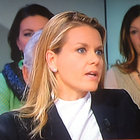
Funzione/Ruolo
Non-resident Senior Fellow e storica militare presso Brookings Institution (Washington); Senior Associate Fellow dell’Istituto per gli Studi di Politica Internazionale (ISPI).
Percorso professionale
Nel 2004, consegue il PhD presso l'Università di Milano, con uno studio sulla relazione controversa tra il fascismo e la Croce rossa italiana.
Ha collaborato con il Pentagono e con il segretario alla Difesa James Mattis come sua consulente sulla Libia. Ha lavorato come advisor sul Maghreb per il Gruppo Terna, il primo operatore di rete per la trasmissione di energia elettrica in Europa.
Nel settembre 2016, testimonia davanti alla Commissione degli affari esteri della Camera dei Rappresentanti americana sul terrorismo in Libia.
Attualmente è Senior Fellow di Brookings Institution e Senior Associate Fellow dell’Istituto per gli Studi di Politica Internazionale (ISPI).
Risultati scientifici
Specialista in tattiche e strategie di contro-guerriglia. È una storica militare esperta in colonie africane: i suoi studi hanno riguardato la Libia e il Corno d'Africa, ma anche l'Afghanistan. Partecipa come lecturer a numerose conferenze e congressi di storia militare, e ha tenuto alcune lezioni all'Accademia Navale della Marina americana ad Annapolis.
Nel 2006 sviluppa per la Rai-National Television italiana le serie La Storia del Fascismo e nel 2009 La Seconda Guerra Mondiale, distribuite da "Il Corriere della Sera". Ha pubblicato cinque libri storici e sta pubblicando l'ultimo con l'Istituto Navale di Annapolis sulle operazioni di contro-insurrezione italiana in Libia ed Etiopia (1922-1940).
Attività editoriali e pubblicazioni
Libri:
[2019] Saini Fasanotti F, VINCERE! The Italian way of COIN: Libya and Ethiopia. 1922-1941, USNI, Annapolis.
[2015] Saini Fasanotti F, L'Esercito alla macchia. La controguerriglia italiana dal Brigantaggio alla Seconda Guerra Mondiale (1860-1943), Ufficio Storico dello Stato Maggiore della Difesa, Roma.
[2014] Saini Fasanotti F, Afghanistan. Dall'Impero dei Durrani alla Resolute Support Mission, MursiaEditore, Milano.
[2012] Saini Fasanotti F, Libia 1922-1931. Le operazioni militari italiane, Ufficio Storico dello Stato Maggiore dell'Esercito, Roma.
[2010] Saini Fasanotti F, Etiopia 1936-1940. Le operazioni di polizia coloniale attraverso le fonti dell'Esercito italiano,Ufficio Storico dello Stato Maggiore dell'Esercito, Roma.
[2006] Saini Fasanotti F, La gioia violata. Crimini contro gli italiani 1940-1946,EdizioniAres,Milano.
Articoli:
Scrive regolarmente per diversi Think Tank di primo piano, e ha pubblicato molti saggi e articoli su riviste storiche e geopolitiche,come anche su periodici di politica estera e riviste specializzate.
[2019] Saini Fasanotti F, Libya and the Franco-Italian rivalry, in Geopolitical Intelligence Services
[2019] Saini Fasanotti F, The Rise of Populacracy, in The National Interest
[2019] Saini Fasanotti F, Between false myths and real threats, in Formiche (Agosto-Settembre).
[2017] Saini Fasanotti F, Libya, a nation suspended between past and future, in Studia Diplomatica LXVIII-4, Egmont Royal Institute for International Relations.
[2016] Saini Fasanotti F, The Italian war industry on the threshold of the Great War: between mobilization and innovation, pp. 332-345, in "Neutral Italy 1914-1915", Roma, Rodorigo Editore.
[2014] Saini Fasanotti F, Libyan Troops (1922-1931).The Trainingduring the Reconquest, inRivista Militare(quarterly).
Riconoscimenti e premi
Finalista e Premio Speciale nella sezione storico-scientifica del 44° Premio Acqui-Storia.
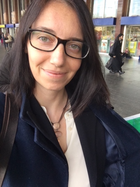
Area Politica internazionale
Competenze: geopolitica del Nord Africa e del Medio Oriente, politica estera dell'Italia, politica estera europea, Sahel centrale, Tunisia
Parole chiave: crisi della democrazia, democrazie, Medio Oriente e Nord Africa, mobilitazioni, sicurezza, stato, terrorismo, Unione Europea
Regione: Lazio
Funzione/Ruolo
Professoressa associata di Scienza Politica e Relazioni Internazionali presso Università L’Orientale, Napoli.
Percorso professionale
Consegue la laurea cum laude nel 2001 presso l'Università di Bologna in Scienze Internazionali e diplomatiche e un Master in Studi del Vicino e Medio Oriente presso la School of Oriental and African Studies (SOAS) di Londra nel 2003. Nel 2008 completa il dottorato di ricerca in Analisi e interpretazione della società europea presso Università Federico II, Napoli.
Vanta diverse fellowship e collaborazioni con vari Istituti di ricerca e Università: durante il dottorato collabora con il Centre for European Policy Studies (CEPS) e con la Stiftung fur Wissenschaft und Politik (SWP), nel 2008 è desk officer nella European Research Area dell’Università di Bologna, nel 2011/12 è fellow di Brookings Institution, nel 2010 lavora all’ISPI sull’Atlante geopolitico Treccani e nel 2013 entra a far parte della Transatlantic Academy del German Marshall Fund (GMF US).
L’esperienza acquisita la porta al Ministero degli Affari Esteri come consulente del vice-ministro degli Esteri su Mediterraneo e Medio Oriente. Nel 2015-2016 lavora alla Johns Hopkins University -SAIS Europe- di Bologna come associate fellow.
Nel 2012 diventa ricercatrice, prima junior e poi senior, presso l’Università L’Orientale di Napoli, dove attualmente è professoressa associata di Scienza politica e relazioni internazionali. E’ inoltre Associate Fellow dell’Institute of Middle East, Central Asia and Caucasus Studies (MECACS) all'Università di St. Andrews e consulente del World Food Programma a Roma, nella Analysis and Early Warning Unit.
Risultati scientifici
Dal 2012 al 2015 ha coordinato il progetto EUSPRING finanziato da Compagnia di San Paolo, Volkswagen Stiftung e Riksbanken Jubileumsfond all’interno del programma Global Challenges to Europe su Cittadinanza e relazioni Stato-società in Nord Africa dopo le rivolte arabe del 2011.
Dal 2015 al 2019 coordina STREETPOL, progetto finanziato dal Ministero della Ricerca italiano all’interno del programma SIR su Proteste nel mondo arabo dal 2011 in poi.
Attività editoriali e pubblicazioni
[2019] Santini R.H, Polese A, (eds.), Rethinking statehood in the Middle East and North Africa. Security, sovereignty and new political orders, Routledge, pp. 234.
[2019] Santini R.H, Cimini, G, The politics of security reform in post-2011 Tunisia: assessing the role of exogenous shocks, domestic policy entrepreneurs and external actors, “Middle Eastern Studies”, vol. 55, n.1, pp. 225-241.
[2019] Santini R.H, Cimini G, Intended and unintended consequences of security assistance in post-2011 Tunisia, in Contemporary Arab Affairs, vol. 12, n.1, 2019, pp. 91-106.
[2019] Santini R.H, Costantini I, ‘Saudi Arabia’s space shaping: making or unmaking a region’, in Giusti S, Mirkova I (eds.), The EU in a Trans-European space. External relations across Europe, Asia and the Middle East, Springer pp. 113-131.
[2019] Santini R.H, Pontiggia S, Informality and state-society relations in post-2011 Tunisia, in Polese A, Russo A, Strazzari F, (eds.), Governance beyond the law. The immoral, the illegal, the criminal,Palgrave.
[2018] Santini R.H, Limited statehood in post-revolutionary Tunisia. Citizenship, economy, security,Palgrave.
[2018] Santini R.H, Tholens S, Security Assistance in a Post-Interventionist Era: the impact on hybrid political orders in Tunisia and Lebanon, in Small Wars and Insurgencies.
[2018] Santini R.H, Polese A, Limited statehood and its security implications on the fragmentation of political orders in the Middle East and North Africa, in Small Wars and Insurgencies.
[2018] Santini R.H, The EU and post-Arab Uprisings’ citizenship: a fuzzy model or contrasting ideologies, in Mejier R, Butenschon N (eds.), The Middle East in transition: the centrality of citizenship, Edward Elgar.
[2018] Santini R.H, Il 2011 e il re-balancing del Golfo arabo: trasformazioni geopolitiche della regione del Medio
Oriente e Nord Africa, in Civiltà del Mediterraneo (numero monografico).
[2017] Santini R.H, A New Regional Cold War in the Middle East and North Africa: Regional Security Complex Theory Revisited, in The International Spectator, November
[2017] Santini R.H, Moro FN, Between hierarchy and heterarchy: Post Arab uprisings’ civil-military relations and the Arab state, in Mediterranean Politics.
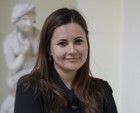
Area Politica internazionale
Competenze: Asia centrale, Asia orientale, politica estera e di sicurezza della Cina, relazioni internazionali, relazioni tra Cina e spazio post-sovietico, relazioni tra Russia e Cina
Parole chiave: Asia centrale, Asia orientale, Cina, Covid-19, sicurezza
Regione: Lombardia
Funzione/Ruolo
Assegnista di ricerca, Dipartimento di Lettere e Filosofia, Università di Trento
Percorso professionale
Giulia Sciorati è assegnista di ricerca post-dottorato presso il Dipartimento di Lettere e Filosofia dell'Università di Trento, dove lavora a un progetto interdipartimentale sull'impatto della Belt and Road Initiative e della pandemia da Covid-19 sulla politica estera della Cina ( BRIICoPIC ), diretto dalla professoressa Sofia Graziani. Giulia Sciorati è anche Research Fellow per il China Programme dell'Istituto per gli Studi di Politica Internazionale (ISPI). Ha conseguito un dottorato di ricerca in Studi Internazionali presso la Scuola di Studi Internazionali dell'Università di Trento nel settembre 2020. La sua tesi ha indagato i driver della politica antiterrorismo cinese nello Xinjiang dal 1996 al 2017 attraverso un approccio realista neoclassico. Durante i suoi studi, è stata visiting researcher presso l'Università di Oxford, Nottingham e l'Istituto europeo di studi asiatici (EIAS). I suoi interessi di ricerca includono la politica estera e di sicurezza della Cina, le relazioni della Cina con l'Asia centrale e la teoria del soft power.
Risultati scientifici
Si occupa di questioni di sicurezza con particolare riferimento alle politiche di antiterrorismo e ai fattori che influenzano le politiche decisionali a livello di leadership governativa in Cina. Un secondo filone di ricerca si concentra sulla proiezione regionale della politica estera cinese con particolare attenzione alla Nuova Via della Seta e il suo impatto sulle relazioni della Cina con i Paesi centrasiatici.
Attività editoriali e pubblicazioni
[2021, in corso di pubblicazione] Looking East? An Analysis of Kazakhstan’s Geopolitical Code after Participation in China’s Belt and Road Initiative, Eurasiatica: Studies on the Balkans, Anatolia, Iran, the Caucasus and Central Asia.
[2021] Post-Pandemic Asia: A New Normal for Regional Security?, with A. Berkofsky, Milan, Ledizioni.
[2020] Mapping China’s Global Future: Playing Ball or Rocking the Boat?, with A. Berkofsky, Milan, Ledizioni.
[2020] Pandemic Trust: China-Italy Relations During Covid-19, Panorama: Insights into Asian and European Affairs, 22(2): 39-50.

Funzione/Ruolo
Professoressa associata di Storia e Istituzioni dell’Asia, Dipartimento di Studi su Asia e Africa Mediterranea, Università Ca’ Foscari, Venezia.
Percorso professionale
Si laurea in Lettere all’Università di Firenze con una tesi di storia contemporanea e prosegue gli studi a Londra, dove ottiene il Ph.D nel 2004 allo University College London in Hebrew and Jewish Studies. Rientra in Italia dove comincia a collaborare con l’Università di Venezia, prima come docente a contratto, poi come assegnista (dal 2007) e poi come ricercatrice a tempo indeterminato (dal 2011). Come borsista, post-doc e/o visiting scholar, è stata ospite di atenei e centri di ricerca, negli USA (Brown University, American Jewish University), in UK (University of Oxford, Institute of Historical Research, London), in Francia (INALCO), Israele (Hebrew University of Jerusalem, Centre de Recherche Francais à Jérusalem), Cina (University of Nanjing). Dal 2004 insegna anche alla New York University di Firenze.
Risultati scientifici
Ha lavorato su diversi temi e filoni di ricerca nella storia sociale del conflitto israelo-palestinese e mantiene una agenda di ricerca molto attiva. Tra i suoi interessi, ci sono la storia della medicina e della sanità pubblica nella Palestina del Mandato britannico, il cinema israeliano, la nonviolenza e resistenza civile in Israele e Palestina e l’obiezione di coscienza militare in Israele.
Attività editoriali e pubblicazioni
Tra le pubblicazioni degli ultimi 10 anni si annoverano:
Monografie
[2018] Simoni M, Miccoli D, Foscarini G, Homelands and Diasporas: Perspectives on Jewish Culture in the Mediterranean and Beyond, Cambridge Scholars, Newcastle upon Tyne.
[2010] Simoni M, A Healthy Nation. Zionist Health Policies in British Palestine (1930-1939), Cafoscarina, Venezia.
[2010] Simoni M, At the Margins of Conflict. Social Perspectives on Arabs and Jews in British Palestine (1922-1948), Cafoscarina, Venezia.
Curatele e numeri speciali di riviste
[2013] Simoni M, Israelis and Palestinians Seeking, Building and Representing Peace, “Quest. Issues inContemporary Jewish History, 5.
Capitoli in volumi
[2018] Simoni M, Young Italian Jews in Israel, and back. Voices from a generation (1945-1953), pp. 173-200, in “Italian Jewish Networks between Europe and the Mediterranean”, Schwarz G, Ferrara C, Bregoli F (eds.), Palgrave Macmillan, New York.
Articoli in riviste scientifiche Peer-Reviewed
[2017] Simoni M, (ed.) Narcotici e storia globale, in Simoni, M, “Passato e Presente”, vol. 101, pp. 167-90.
[2016] Simoni M, Una storia di relazioni mancate. Giorgio La Pira e il conflitto israelo-palestinese, in Humanitas, vol. 71/5, pp. 724-32.
[2013] Simoni M, «Hello Pacifist». War resisters in Israel’s first decade, in Simoni M (ed.), “Israelis and Palestinians Seeking, Building and Representing Peace” “Quest. Issues in Contemporary Jewish History” 5, pp. 73-100.
[2013] Simoni M, «Spara e Prega!» Il cinema israeliano a trenta anni dalla guerra del Libano, in, Passato e Presente, vol. 31/88, pp. 111-30.
[2013] Simoni M, Imparare a separarsi. L’educazione di arabi e ebrei nella Palestina britannica (1922-1948), in “Qualestoria”, 40/2: 61-84.
[2012] Simoni M, Giovani, educazione e democrazia in Israele. La prospettiva di «New Outlook» negli anni Sessanta, in SMP Società Mutamento Politica, vol. 3/5, pp. 121-33.
[2012] Simoni M, Legrenzi M, Di Peri R, Mazzuccotelli F, Meier D, Il Libano prima e dopo il 1982, in Passato e Presente, vol. 87, pp. 19-37 e 249-62.
Riconoscimenti e premi
2009-10, Accademia dei Lincei (Roma) Premio “Alessandro Vaciago” per le scienze politiche e sociali

Area Politica internazionale
Competenze: produzioni culturali nel mondo arabo e nelle sue diaspore, storia dei movimenti sociali e politici in Medio Oriente e Nord Africa, storia politica e culturale del Nord Africa e del Medio Oriente, studi di genere
Parole chiave: donne, genere, Islam, Medio Oriente, mondo arabo, Nord Africa
Regione: ESTERO
Funzione/Ruolo
Direttrice Dipartimento di Lingua e Culture Arabe, Università di Sydney, NSW
Percorso professionale
Dopo la Laurea in Lingue e Letterature Orientali (Arabo) presso l’Università Ca’ Foscari di Venezia (2000), il Master sull’Immigrazione presso la stessa Università (2001), e il Master in Studi Interculturali presso l’Università di Padova (2001), ha conseguito il Dottorato in Civiltà, Culture e Tradizioni Arabo-Islamiche presso l’Università Ca’ Foscari di Venezia con una tesi sulla storia del femminismo egiziano (2006). Dal 2011 vive e insegna a Sydney, dove dirige il dipartimento di Lingua e Culture Arabe e insegna nel programma di Lingua e Cultura Araba, nel programma di International and Global Studies, di European Studies e di International and Comparative Literary and Translation Studies. Dal 2016 cura insieme a Paola Caridi il Programma Anime Arabe, un Focus sulla letteratura e la cultura araba al Salone del Libro di Torino.
Risultati scientifici
La sua ricerca nel campo della storia delle donne si concentra sullo studio del femminismo egiziano. Ha pubblicato una biografia sulle donne arabe, sulla leadership politica delle donne arabe e sul cinema iracheno contemporaneo.
Attività editoriali e pubblicazioni
Monografie
[2013] Sorbera L. (con Lorenzo Casini e Maria Elena Paniconi), Modernità arabe. Nazione, narrazione e nuovi soggetti nel romanzo egiziano, Mesogea, Messina.
Curatele
[2018] Sorbera L. (con Bronwyn Winter), Contending Legitimacy in World Politics, Taylor and Francis, London.
Monografici di Riviste
[2016] Sorbera L. (con Bronwyn Winter), "Legitimacy". Special issue of Global Discourse: An Interdisciplinary Journal of Current Affairs and Applied Contemporary Thought, 6(3).
[2014] Sorbera L. (con Maurizio Marinelli), "Imagining Revolution". Special issue of Post-Colonial Studies, 17(1).
[2013] Sorbera L. (con Leila El Houssi), "Femminismi nel Mediterraneo". Special Issue of Genesis. The Journal of the Italian Society of Women Historians, 12(1).
Articoli in riviste scientifiche (peer reviewed)
[2017] Sorbera L., "The Debate about Veiling and Unveiling. A transnational History?", Contemporanea, 20(4): 681-699.
[2016] Sorbera L., "Body Politics and Legitimacy: Towards a feminist epistemology of the Egyptian revolution", Global Discourse: An Interdisciplinary Journal of Current Affairs and Applied Contemporary Thought, 6(3): 493-612.
[2014] Sorbera L., "Challenges of thinking feminism and revolution in Egypt between 2011 and 2014", Postcolonial Studies, 17(1): 74-86.
[2014] Sorbera L., "Writing Revolution: New Inspirations, new questions", Postcolonial Studies, 17(1): 104-108.
[2013] Sorbera L., "Femminismo e rivoluzione in Egitto e Tunisia, in Linee di Conflitto. Il mondo arabo in trasformazione". Dossier, Afriche e Orientied (by Massimiliano Trentin) 15(1-2): 38-52.
[2013] Sorbera L. (con Leila El Houssi), "Femminismi nel Mediterraneo", Genesis. The Journal of the Italian Society of Women’s Historians, 12(1): 5-12.
[2013] Sorbera L., "Early Reflections of an Historian on Feminism in Egypt in Times of Revolution", Genesis. The Journal of the Italian Society of Women’s Historians, 12(1): 13-42.
Riconoscimenti e premi
Premio Franca Pieroni Bortolotti per la migliore tesi di dottorato in storia delle donne e di genere, conferito nel 2006 dalla Società Italiana delle Storiche.
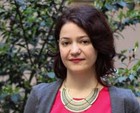
Area Politica internazionale
Competenze: politica estera di vicinato dell'Europa, politica estera russa, relazioni tra Russia e Turchia, relazioni tra UE e Russia
Parole chiave: area post-sovietica, coronavirus, Covid-19, Covid-19: geopolitica dei vaccini, politica estera, Russia, soft power, Sputnik V, Unione Europea, vaccini
Regione: Lombardia
Funzione/Ruolo
Ricercatrice ISPI
Percorso professionale
Eleonora Tafuro Ambrosetti è research fellow presso l’Osservatorio Russia, Caucaso e Asia Centrale dell’ISPI. In precedenza è stata Marie Curie Fellow presso l'Università tecnica del Medio Oriente (METU) ad Ankara, in Turchia, dove ha anche conseguito un dottorato in Relazioni internazionali. Ha lavorato come ricercatrice presso l'ufficio di Bruxelles della Fondazione per le relazioni internazionali e il dialogo estero (FRIDE) e come assistente di ricerca presso il Centro per gli affari internazionali di Barcellona (CIDOB). Ha conseguito una laurea triennale in Relazioni internazionali presso l'Università del Salento, un Master in Studi europei presso l'Università di Roma Tre e un Master di ricerca in Relazioni internazionali presso l'Istituto di studi internazionali di Barcellona (IBEI). Partecipa a WIIS (Women in International Security), una rete internazionale dedicata ad aumentare l'influenza delle donne nel campo della politica estera e di difesa.
Risultati scientifici
Eleonora Tafuro Ambrosetti è esperta di potenze regionali (Russia e Turchia e loro relazioni con l’UE) e visioni non occidentali delle relazioni internazionali e soft power.
Attività editoriali e pubblicazioni
[2020] Lovotti C., Tafuro Ambrosetti E. e C. A. Hartwell, Russia in the Middle East and North Africa. Continuuity and Change, Routledge. Europa Regional Perspectives Book Series.
[2019] Cherif Y., Lovotti C. e E. Tafuro Ambrosetti, The Role of Russia in the Middle East and North Africa Region. Strategy or Opportunism?, EuroMeSco Joint Policy Study
[2019] Lovotti C. e E. Tafuro Ambrosetti, "How does the European Union perceive Russia's role in the MENA region?", EuroMeSco Joint Policy Study, 12.
[2018] Pishchivoka K. e E. Tafuro Ambrosetti Tensione Russia-Ucraina: cause e conseguenze dellincidente di Kerch, ISPI Analysis
[2017] Tafuro Ambrosetti E. “Linking Status with Soft Power: Call for a joint research agenda”, All Azimuth: a Journal of Foreign Policy and Peace, 7(1): 143-152.
Riconoscimenti e premi
Turkey-EU Future Fellow 2018, Stiftung Mercator
Young Leader, Meeting Russia fellowship 2018, Picreadi Moscow
Marie Curie fellow, 2014-2017, European Commission

Funzione/Ruolo
Professoressa ordinaria di Politica Economica al Politecnico di Milano
Percorso professionale
Si è laureata in Economia Politica presso l'Università Bocconi nel 1988, ha conseguito il Diploma in Advanced International Economic Policy Research presso l'Institute of World Economics di Kiel (Germania) nel 1991, e ha conseguito il dottorato in Scienze Economiche nel 1994.
È Professoressa Ordinaria di Politica Economica presso il Dipartimento di Ingegneria Gestionale del Politecnico di Milano. È anche membro della Giunta dello stesso Dipartimento, con delega agli accreditamenti internazionali, ed è membro del Comitato Scientifico dell’Osservatorio su Export Digitale del Politecnico di Milano. Insegna corsi di Economia, Economia Internazionale e Mercati Internazionali e Istituzioni Europee al Politecnico di Milano nei corsi di laurea triennale, magistrale e post-laurea (MBA, EMBA e PhD). Ha avuto incarichi di insegnamento in Economia Internazionale presso l'Università Bocconi e presso la Scuola Sant'Anna di Pisa, ed è stata numerose volte visiting scholar e visiting professor presso la Ford School of Public Policy dell'Università del Michigan, Ann Arbor (USA).
Sino a luglio del 2019 è stata membro del del comitato scientifico dell’Italian Trade Study Group. Attualmente è senior research fellow presso l'Istituto per gli Studi di Politica Internazionale (ISPI) di Milano, è membro del comitato scientifico dell'Italian Trade Agency (ex-ICE), del comitato scientifico della Fondazione Masi e dello European Trade Study Group. È membro del Comitato di Reggenza della sede di Milano della Banca d’Italia.
Risultati scientifici
È stata coordinatrice di ricerca di progetti di ricerca di rilevante interesse nazionale (PRIN) sull'integrazione europea e sulla posizione competitiva italiana, sul commercio internazionale e sulle politiche commerciali multilaterali. La sua attività di ricerca si concentra su questioni teoriche ed empiriche relative al commercio internazionale e all'integrazione economica tra paesi, in particolare attraverso la frammentazione della produzione internazionale e la partecipazione alle catene globali del valore.
Tra i recenti progetti di ricerca svolti o in corso vi sono: “The use of trade data to understand the market penetration of climate technologies”, progetto finanziato da EBRD; “Misure non tariffarie, standards e certificazioni nel commercio internazionale del 21° secolo, progetto di ricerca finanziato da Accredia; “Le esportazioni digitali delle imprese italiane”, rapporto dell’Osservatorio Export Digitale del Politecnico di Milano con la cooperazione di Italian Trade Agency; “The role of international fragmentation of production in global imbalances during the international financial crisis”, progetto di ricerca di base finanziato dal Politecnico di Milano; “International trade and network analysis”, progetto di ricerca di interesse nazionale finanziato dal MIUR. È membro dell’editorial board della rivista scientifica Plos One, ed è reviewer per numerose riviste scientifiche internazionali.
Attività editoriali e pubblicazioni
Lucia Tajoli ha al suo attivo oltre 100 pubblicazioni. Di seguito le più recenti:
[2021] Stephenson M., Faiz Shaul Hamid M., Peter A., Sauvant K.P., Seric A., Tajoli, L. "More and better investment now! How unlocking sustainable and digital investment flows can help achieve the SDGs", Journal of International business policy, 4(1): 152-165.
[2021] Tajoli L. e C. Piccardi, "The network of international trade in services", Applied network science, 1(68): 1-25.
[2021] Felice G. e L. Tajoli, "Trade balances and global value chains: Is there a link?", Structural change and economic dynamics, 59: 228-246.
[2020] Tajoli L., "Trasformazioni digitali e competitività internazionale delle imprese italiane", Rivista di politica economica, 1: 107-122.
[2020] Tajoli L., "Il mondo economico-finanziario: globale o frammentato?", in Lavori in corso. La fine di un mondo, atto II, a cura di A. Colombo e P. Magri, Ledizioni Ledipublishing, Milano, 51-79.
[2020] Stephenson M., Faiz Shaul Hamid M., Peter A., Sauvant K.P., Seric A., Tajoli L. How the G20 Can Advance Sustainable and Digital Investment, T20 Task Force 1.
[2019] Tantardini M., Ieva F., Tajoli L., Piccardi C., "Comparing methods for comparing networks", Scientific reports, 9(1):1-19.
[2019] Tajoli L., "Le guerre dei dazi: verso la fine della WTO?", in La fine di un mondo. La deriva dell'ordine liberale, a cura di A. Colombo e P. Magri, Ledizioni LediPublishing, Milano, 65-76.
[2018] Tajoli L., "La centralità dei paesi nelle catene globali del valore", in L'Italia nell'economia internazionale. Rapporto ICE 2017-2018. Italian Trade Agency ICE, Roma, 34-41.
[2018] Tajoli, L., De Lombaerde P., Iapadre P., McCranie A., "Using Network Analysis to Study Globalization, Regionalization and Multi-Polarity", Introduction to Special Section, Network Science, 6(4): 517-544.
[2018] Tajoli, L., Piccardi C., "Complexity, centralization, and fragility in economic networks", PLoS ONE, 13 (11): e0208265.
[2018] Tajoli, L., Felice, G., "Global value chains participation and knowledge spillovers in developed and developing countries: An empirical investigation", European Journal of Development Research, 30 (3): 505-532.

Funzione/Ruolo
Senior Research Fellow, Co-head Osservatorio Medio Oriente e Nord Africa, ISPI (Istituto per gli Studi di Politica Internazionale)
Percorso professionale
Valeria Talbot è Senior Research Fellow e Co-Head of dell’Osservatorio su Medio Oriente e Nord Africa dell’Istituto per gli Studi di Politica Internazionale (ISPI). È inoltre docente a contratto al Master in Middle Eastern Studies (MIMES) dell’Alta Scuola di Economia e Relazioni Internazionali (ASERI) dell’Università Cattolica del Sacro Cuore dove insegna Relazioni euro-mediterranee. Dal 2015 al 2017 è stata docente di Storia e Istituzioni del Medio Oriente presso l’Università IULM di Milano. Da alcuni anni coordina i corsi brevi dell’ISPI su “Europa e Mediterraneo” e “I paesi del Golfo: crisi, sfide e diversificazione economica”, dove svolge anche attività di docenza. Inoltre, ha effettuato docenze presso il Master Doing Business nel Mediterraneo e in Medio Oriente del Nuovo Istituto di Business Internazionale (NIBI) della Camera di Commercio di Milano e in altri corsi di formazione.
È invitata a conferenze e seminari in Italia e all’estero sulle tematiche di sua competenza, su cui viene inoltre intervistata dai media italiani e stranieri.
Dopo la laurea in Scienze Politiche presso l’Università di Catania, ha conseguito un Master of Philosophy in Relazioni internazionali presso il Graduate Institute of International Studies di Ginevra.
Risultati scientifici
I suoi principali filoni di ricerche si concentrano sulle dinamiche politiche e di sicurezza nell’area del Mediterraneo allargato, con un focus particolare sul ruolo degli attori esterni, sulle trasformazioni socio-politiche innescate dalle cosiddette Primavere arabe del 2011, sulla politica della Turchia in Medio Oriente e verso l’Asia, sulle monarchie del Consiglio di Cooperazione del Golfo (GCC) e sulla crisi intra Golfo.
Dal 2015 lavora attivamente alla realizzazione della Conferenza annuale Rome MED Dialogues che ISPI organizza con il Ministero degli Esteri. Tra le altre cose, si occupa del coordinamento scientifico del MED Report, che raccoglie le analisi di esperti italiani e internazionali sulle questioni dell’area del Mediterraneo e del Medio Oriente.
Dal 2016 Valeria Talbot cura il rapporto trimestrale “Focus Mediterraneo allargato” realizzato dall’ISPI per l’Osservatorio di Politica Internazionale del Parlamento italiano e del Ministero degli Esteri e della Cooperazione internazionale, per il quale negli anni ha contributo anche con lavori ad hoc sulla Turchia e sulle relazioni euro-mediterranee.
Dal 2013 al 2016 è stata coordinatrice scientifica per l’ISPI di Arab Trans, un progetto triennale finanziato dalla Commissione europea nell’ambito del Settimo programma quadro. Il progetto, che ha coinvolto un consorzio di dodici membri tra università e centri di ricerca europei e arabi, ha analizzato le trasformazioni socio-politiche in sette paesi arabi basandosi su dati dei survey condotti in sette paesi arabi (Algeria, Egitto, Giordania, Iraq, Libia, Marocco e Tunisia). Dal 2013 collabora alla realizzazione dell’Atlante geopolitico Treccani-ISPI. Dal 2010 al 2016 è stata coordinatrice scientifica del progetto Med&Gulf Executive Briefings, svolto in collaborazione con Intesa Sanpaolo e Promos Camera di Commercio di Milano, per le aziende e gli enti italiani interessati alle opportunità di business nell’area del Mediterraneo allargato.
Attività editoriali e pubblicazioni
Valeria Talbot ha coordinato e curato numerosi progetti di ricerca confluiti in diversi tipi di pubblicazione. Scrive commentary e articoli in italiano e inglese per ISPI e riviste online e cartacee.
Dal 2007 al 2011 è stata coordinatrice editoriale della rivista dell’ISPI Quaderni di Relazioni internazionali.
Tra le sue principali pubblicazioni:
[in corso di pubblicazione] Abbot P., Maggiolini P., Talbot V., Teti A., The EU’s Southern Neighbourhood Policy after the Arab Uprisings - A Failure Foretold,Palgrave.
[2019] Talbot, V., Lovotti, C. (a cura di), The Role of Russia in the Middle East and North Africa Region. Strategy or Opportunism?, EuroMeSCo Joint Policy Study n. 12
[2018] Talbot, V., Torelli, S. M. (a cura di), Building Trust: the Challenge of Peace and Stability in the Mediterranean, ISPI MED Report.
[2018] Talbot, V. (a cura di), Turkey: Towards a Eurasian Shift?, ISPI Report.
[2017] Talbot, V., Torelli S. M. (a cura di), Looking Ahead: Charting New Path for the Mediterranean, ISPI MED Report.
[2017] Talbot, V., Fasulo F., "The MENA Region: Where the Belt Joins the Road", in Amighini A. (a cura di), China’s Belt and Road: a Game Changer?, ISPI Report.
[2017] Talbot, V., Frappi C., La politica estera della Turchia, Rapporto per il Parlamento italiano e il Ministero degli Affari Esteri e della Cooperazione Internazionale.
[2017] Teti, A., Maggiolini, P., Talbot, V. and Abbot, P., "MENA Populations' Perceptions of Key Challenges, International context, and the Role of the European Union", Arab Transformations, Working Paper n. 9.
[2016] Talbot, V., Torelli, S. M. (a cura di), Leaving the Storm Behind: Ideas for a New Mediterranean. ISPI MED Report.
[2015] Talbot, V., Lovotti, C., Il rilancio della cooperazione euro-mediterranea, Rapporto per il Parlamento italiano e il Ministero degli Affari Esteri e della Cooperazione Internazionale.
[2015] Talbot, V. (a cura di), The Rising Gulf. The New Ambitions of the Gulf Monarchies, ISPI Report.
[2015] Talbot, V. (a cura di), The Uncertain Path of the New Turkey, ISPI Report.

Area Politica internazionale
Competenze: donne, pace e sicurezza, governance europea, leadership femminile, politica estera di vicinato dell'Europa, politica estera europea, politiche europee in tema di migrazioni, relazioni internazionali, Unione Europea
Parole chiave: cooperazione internazionale, donne, frontiere, immigrazione, legame tra politica interna e politica estera, Mediterraneo, politica estera, sicurezza, Unione Europea
Regione: Lazio
Funzione/Ruolo
Responsabile affari europei e internazionali, Istituto Luigi Sturzo; Presidente di Women In International Security (WIIS) Italy; Responsabile del Network delle Donne Mediatrici del Mediterraneo
Percorso professionale
Dopo la laurea in Relazioni Internazionali-Percorso Politiche e Istituzioni dell’Unione europea, ottiene un dottorato in Scienze Politiche-Studi europei e internazionali presso l’Università degli Studi Roma Tre focalizzando la sua ricerca sul nesso tra la politica interna e la politica estera dell’Unione europea nell’ambito dell’immigrazione.
Dal 2011 lavora presso l’Istituto Luigi Sturzo prima come responsabile di ricerca e poi, dal 2018, in qualità di responsabile degli affari europei e internazionali, occupandosi di ideare, sviluppare, coordinare e gestire numerosi progetti di ricerca, in particolare sull’UE e sulle politiche migratorie, e di avviare o consolidare relazioni esterne e partenariati.
E’ inoltre la Presidente dell’antenna italiana di Women In International Security (WIIS), network globale che promuove la leadership femminile e l’uguaglianza di genere nell’ambito delle relazioni internazionali, della pace e della sicurezza, dove ha fondato un programma di mentoring e ha creato la Task Force di Donne Leader Afghane; responsabile del Network di Donne Mediatrici del Mediterraneo, lanciato dal Ministero degli Affari Esteri; e la Referente per questioni di genere nelle relazioni internazionali dell’Istituto Affari Internazionali.
Dopo una visiting fellowship di due anni a Bruxelles presso il Wilfried Martens Centre for European Studies, viene nominata Research Associate, dedicandosi principalmente alla ricerca e all’analisi nell’ambito delle politiche dell’UE di immigrazione, e dal 2023 entra a far parte del Comitato Accademico.
Collabora con numerosi think tank e network di esperti: è membro della Fundamental Rights Platform dell'Agenzia europea dei diritti fondamentali e del Consultative Forum dell'Agenzia europea per l’Asilo, è Senior Fellow di WIIS Global di Washington, e autrice del Podcast HerAndEU. Precedentemente, è stata Consulente esperta della Commissione Straordinaria Diritti Umani del Senato, ha coordinato la Global Alliance of Regional Women Mediator Networks, la più grande piattaforma di donne mediatrici e peacebuilders nel mondo, ha lavorato per il Ministero degli Affari Esteri in occasione della Presidenza dell’UE e collaborato con la cattedra di diritto e istituzioni dell'UE e il Centro di eccellenza Altiero Spinelli (CeAS) dell’Università Roma Tre.
Esperta di politiche europee e di politiche di immigrazione, con una pluriennale esperienza nello sviluppo, gestione e coordinamento di iniziative e progetti di ricerca, nell'analisi politica e nelle relazioni istituzionali, collabora con numerosi think tank e istituzioni pubbliche e private.
Risultati scientifici
Si occupa principalmente di affari europei e relazioni internazionali, con una particolare expertise nella politica di immigrazione dell’Unione Europea (interna all'UE e di cooperazione esterna con stati terzi).
Tra le sue aree di interesse vi sono la politica estera, di vicinato e di cooperazione dell’UE; politiche, governance e integrazione europea; sicurezza e confini; diritti umani; questioni di genere.
Su questi temi sviluppa e coordina progetti di ricerca, tiene lezioni universitarie e interviene a dibattiti presso istituzioni, università, think tank e organizzazioni non-governative, partecipa a gruppi di lavoro e scrive analisi e articoli.
Attività editoriali e pubblicazioni
Autrice di numerose analisi e briefings prodotti nell'ambito dei progetti di ricerca promossi dall'Istituto Luigi Sturzo, dal Wilfried Martens Centre for European Studies e dal Centro di eccellenza Altiero Spinelli dell’Università Roma Tre.
Principali pubblicazioni:
[dal 2021] Teodorescu L., Podcast HerAndEU
[2023] Teodorescu L, “Women in Diplomacy” – series of conversations, Festival della Diplomazia
[2023] Teodorescu L., Ripensare la politica migratoria europea, in "Africa. Politica, democrazia e migrazioni" di Giuseppe Bettoni, UTET Università
[2022] Teodorescu L., Donne, lavoro e leadership: il cammino incompiuto in Italia e in Europa, in "Il presente che verrà", di Gaia Tessitore (ed..), Primiceri Editore
[2021] Teodorescu L. (a cura di), Rafforzare il dialogo transatlantico. Il ruolo della NATO e la cooperazione NATO-UE di fronte alle sfide comuni, Editoriale Scientifica
[2021] Teodorescu L., Externalising the EU asylum policy. In search for a balance between protecting refugees inside and outside Europe, in La Cittadinanza europea, Franco Angeli, n. 2/2020
[2020] Teodorescu L. (a cura di), Riflessioni sul futuro dell'Europa. Un confronto generazionale per rilanciare l'UE, Editoriale Scientifica.
[2019] Teodorescu L., "Women as key players for mediation, peace and security", Quaderns de la Mediterrània 28/29.
[2019] Teodorescu L., Giorgi G. (a cura di), Culture della Repubblica per l’Europa (curatela, con Luigi Giorgi), Editoriale scientifica.
[2018] Teodorescu L., "Politica esterna di immigrazione dell’Unione europea e suoi legami con la dimensione interna", La Cittadinanza europea, 16(2): 73-99.
[2018] Teodorescu L., "Beyond emergency measures: the need for a holistic and truly European approach to migration", European View, 17(2): 163-171.
[2017] Teodorescu L., "Ambition versus reality: partnering on migration with the neighbours", European View, 16(1): 121-130.
[2016] Teodorescu L., "Security and Migration: Balancing the Security of External Borders and the Responsibility to Protect" (con Vít Novotný), in Tungul L. (a cura di), Solutions to the Political Challenges of 2017, WMCES-KAS-TOPAZ.
[2013] Teodorescu L., "Un' Europa più attraente per i migranti altamente qualificati: considerazioni sulla Carta Blu UE", La Cittadinanza europea, 1: 95-104.
[2011] Teodorescu L., "Lo sviluppo di una politica di immigrazione dell'Unione europea", Working paper, Centro Altiero Spinelli-Polo di eccellenza Jean Monnet, Università degli Studi Roma Tre.
Riconoscimenti e premi
Nel 2015 è stata nominata membro del Gruppo italo-tedesco di Young Leaders promosso dalla Fondazione Adenauer, uffici di Roma e Berlino.
Nel 2017 è stata selezionata per la partecipazione al Brussel Forum’s Young Professional Summit promosso dal German Marshall Fund of the United States.
Dal 2017 è membro del Network di esperti di politica europea promosso dalla Fondazione Konrad Adenauer, ufficio di Berlino (2017)
Dal 2018 fa parte del Network di esperti sull'immigrazione promosso dal Programma Regionale di Dialogo Politico nel Mediterraneo del Sud della Fondazione Konrad Adenauer, ufficio di Tunisi.
Dal 2019 è membro del Comitato di WIIS Italy (Women in international security) e membro del network europeo Brussels Binder Beyond nato per favorire una maggiore partecipazione delle donne ai dibattiti pubblici.
Nel 2022 è stata eletta membro del Consiglio di Presidenza del Movimento europeo Italia.

Funzione/Ruolo
Ricercatrice di Scienza Politica all’Università di Trieste.
Percorso professionale
Laureata in Scienze Politiche all’Università di Trieste (1992). Ha ottenuto il Dottorato di ricerca in Scienza Politica presso l’Università di Firenze (1998). È stata assegnista di ricerca tra il 1999 e il 2002 presso l’Università di Trieste, dove ha insegnato Analisi delle politiche pubbliche, Politica comparata e Governo europeo, e dove ora insegna Politiche pubbliche europee.
Risultati scientifici
Si è soffermata sulle prassi di concertazione tra governi, sindacati e organizzazioni imprenditoriali in prospettiva comparata; sul ruolo politico dei gruppi d’interesse; sul processo di democratizzazione in Europa centro-orientale; sulla rilevanza di alcune policy areas dell’Unione Europea. Ha partecipato a ricerche di interesse nazionale (PRIN; progetto ‘Giovani Ricercatori’) e internazionale. È iscritta all’International Political Science Association (IPSA) e all’European Sociological Association (ESA, presso il Research Network 17 – Work, Employment and Industrial Relations, di cui è stata vicepresidente dal 1999 al 2009). Dal 2011 partecipa allo Standing Group sui gruppi d’interesse della Società Italiana di Scienza politica (SISP).
Attività editoriali e pubblicazioni
[2022] Vatta A., The evolution of Italian bilateral bodies and funds in a comparative perspective. Economic and Industrial Democracy, 43(1): 32-51.
[2020] Vatta A., Interessi e conflitti organizzativi nella gestione delle emergenze socio-politiche. Poliarchie/Polyarchies, 3(2): 157-171
[2019] Vatta A., La politica commerciale dell’Unione Europea e le “democrazie difficili”: riflessioni su tre stati del Medio Oriente, in D. Abenante (ed), “Democrazie difficili” in Europa, Asia, Nord Africa e Medio Oriente: competizione partitica, conflitti e democratizzazione, Trieste: EU,: 119-136.
[2018] Vatta A., L’evoluzione organizzativa nella rappresentanza delle piccole e medie imprese: il caso di Rete Imprese Italia, in Aa.Vv., Diritto, economia e società. In ricordo di Luisa Cusina, Trieste: EUT, 273-282.
[2018] Vatta A., The Social Clauses in EU Trade Agreements: contents and prospects. Poliarchie/Polyarchies, 2: 286-306.
[2017] Vatta A., The EU Migration Policy: between Europeanization and Re-Nationalization, in S. Baldin e M. Zago (eds), Europe of Migrations: Policies, Legal Issues and Experiences, Trieste: Biblioteca della Società Aperta, EUT, 13-31.
[2011] Vatta A., I gruppi d’interesse e la rappresentanza politica dei rom, in S. Baldin e M. Zago (eds), Il mosaico rom. Specificità culturali e governance multilivello, Milano: Franco Angeli, 129-142.
[2011] Vatta A., The Reform of Collective Bargaining and the Flexible Work Issue in Italy, in M. Baglioni e B. Brandl (eds) Changing Labour Relations. Between Path Dependency and Global Trends, Frankfurt am Main: Peter Lang, 51-69.
[2010] Vatta A., Collective bargaining and the flexibilisation of employment in Italy, in U. Huws, S. Lehndorff e D. Grimshaw (eds), Between a rock and a hard place: the shaping of employment in a global economy, London: Analytica Publications, 193-205.
[2007] Vatta A., Italy, F. Traxler e G. Huemer (eds), Handbook of Business Interest Associations, Firm Size and Governance. A comparative analytical approach, Abingdon: Routledge, 204-229.
[2004] Vatta A., Lo sviluppo della società civile, in L. Mattina (ed), La sfida dell’allargamento. L’Unione europea e la democratizzazione dell’Europa centro-orientale, Bologna: Il Mulino, 215-255.
[2003] Vatta A., L’allargamento dell’Unione Europea e lo sviluppo delle organizzazioni imprenditoriali nei paesi dell’Europa centro-orientale. Rivista Italiana di Politiche Pubbliche, 2-3: 175-200.
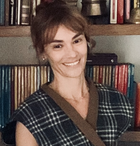
Area Politica internazionale
Competenze: diritto di guerra, diritto penale internazionale, diritto umanitario internazionale, indagini penali internazionali
Parole chiave: cooperazione internazionale, Corte Penale Internazionale (CPI), crimini contro l’umanità, crimini di guerra, crimini internazionali, genocidio, guerre, violenza sulle donne
Regione: ESTERO
Funzione/Ruolo
Capo squadra e sostituta procuratrice presso l’ufficio del Procuratore della Corte Penale Internazionale dell'Aia (Paesi Bassi).
Percorso professionale
Alice Zago lavora nell’ambito dei diritti umani e del diritto penale internazionale. La sua esperienze professionale include indagini e processi per crimini di guerra e contro l’umanità commessi in vari paesi africani, del centro e sud America e dell’Asia. Dopo una specializzazione in diritto internazionale ed europeo dei diritti umani, nell’anno 2000 inizia a lavorare per la ONG 'Non c’e’ Pace Senza Giustizia' come consulente in materia di cooperazione internazionale. Successivamente lavora per la missione di pace delle Nazioni Unite in Guatemala indagando sulle violazioni dei diritti umani per poi passare alla funzione di consulente in materia di diritto internazionale per la Missione permanente di Timor-Leste presso le Nazioni Unite a New York. Alla fine del 2004, Alice Zago viene nominata investigatrice presso l’ufficio del Procuratore della Corte Penale Internazionale dove continua a ricoprire altri incarichi tra cui quello di Team Leader, sostituta procuratrice e capo squadra. Nel 20213, consegue un Master of Laws presso la facoltà di legge di Harvad con una tesi sul crimine organizzato transnazionale.
Partecipa spesso ad attività accademiche, in particolare della International Nuremberg Principles Academy, come l’annuale Moot Court, un'attività co-curriculare in cui i partecipanti prendono parte a procedimenti giudiziari o arbitrali simulati. E’ chiamata spesso come docente di attività di formazione professionale presso istituti, Università e ONG, e come relatrice a convegni in Italia e all'estero.
Risultati scientifici
La prima e sola donna italiana a dirigere indagini per crimini contro l’umanità e crimini di guerra presso la Corte Penale Internazionale e a partecipare ai processi, Alice Zago si specializza nello ius in bello, nella commissione di crimini internazionali su larga scala, specialmente sui crimini di natura sessuale e violenze di genere e contro i minori, la deportazione, le sparizioni forzate, la persecuzione come crimine contro l’umanità e sulle teorie moderne della responsabilità penale individuale del superiore. Alice Zago ha una conoscenza approfondita della procedura penale internazionale avendo partecipato come rappresentante della Procura della CPI a vari processi, apparendo in udienza, interrogando e contro-interrogando testimoni, incluse vittime di crimini, e redigendo complessi documenti giuridici. In aggiunta, ha maturato una vasta conoscenza delle tecniche di indagine, in particolare dell’interrogatorio, delle indagini OSINT e big data. Alice Zago ha anche una considerevole esperienza manageriale avendo coordinato per lungo tempo squadre multidisciplinari in contesti diversi e multiculturali.
Attività editoriali e pubblicazioni
Alice Zago ha contribuito a una vasto numero di pubblicazioni, come ad esempio la ricerca intolata “Advancing Justice for Children” (Save the Children, 2021) e “Interrogations in war and conflict” (a cura di Cristopher A. and Tobia S., 2014).
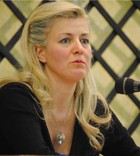
Area Politica internazionale
Competenze: differenze sociali nella società e nel mercato del lavoro, governance dei processi migratori e di integrazione, immigrazione, migrazioni internazionali, politiche migratorie, relazioni tra i contesti organizzativi e ambienti sociali di riferimento
Parole chiave: cittadinanza, convivenza interetnica, coronavirus, Covid-19, Covid-19: impatto su immigrati/e, differenze e disuguaglianze sociali, disuguaglianze, innovazione sociale, mercato del lavoro, migrazioni
Regione: Lombardia
Funzione/Ruolo
Professoressa ordinaria di Sociologia dei processi economici presso l’Università Cattolica di Milano. Direttrice del centro WWELL Research Center (Work, Welfare, Enterprise, Lifelong Learning).
Percorso professionale
Dopo la laurea in Scienze politiche presso l’Università Cattolica di Milano (per la quale ha ottenuto il Premio Gemelli quale migliore laureata dell’anno), consegue (1995) un dottorato di ricerca in Sociologia e metodologia delle scienze sociali, presentando una tesi sullo sviluppo locale nell’esperienza francese, valutata con un giudizio di eccellenza.
Inquadrata nel 1998 come ricercatrice per il settore della Sociologia dei processi economici, è successivamente entrata nel ruolo dei professori associati (2005) e quindi, dal 2010, in quello dei professori ordinari. Attualmente è titolare, presso la Facoltà di Scienze politiche e sociali dell’Università Cattolica, dei corsi di “Sociologia delle migrazioni e della convivenza interetnica” e di “Organizzazioni, Ambiente e Innovazione sociale”. È inoltre coordinatrice del corso di laurea magistrale in “Lavoro e direzione d’impresa” (un percorso che mira a formare manager “illuminati”, che abbinino una solida preparazione specialistica con una peculiare sensibilità per le implicazioni sociali ed etiche dell’agire d’impresa) e Direttrice scientifica della Summer school “Mobilità umana e giustizia globale”.
Oltre che una ricca attività di ricerca scientifica, ha accumulato un’ampia esperienza nel campo della didattica, sia in ambito accademico (come docente dei corsi di sociologia economica, sociologia del lavoro, sociologia delle migrazioni, sociologia delle differenze e delle disuguaglianze), sia in ambito extra-accademico (come esperta coinvolta in iniziative di formazione permanente promosse da pubbliche amministrazioni, distretti scolastici, associazioni culturali, sindacati dei lavoratori e delle imprese, enti del privato-sociale, istituzioni religiose).
Collabora con la Fondazione ISMU fin dalla sua nascita, nel 1991, come membro del Comitato tecnico-scientifico, Responsabile del Settore Economia e Lavoro e del Centro di Documentazione.
Dalla sua istituzione (2010) è Direttrice scientifica del Centro di ricerca WWELL (Work, Welfare, Enterprise, Lifelong Learning), afferente al Dipartimento di Sociologia dell’Università Cattolica, centro attorno al quale si sviluppano una serie di iniziative di ricerca applicata, formazione e consulenza in continuità con una tradizione sensibile alle dimensioni etiche, di sostenibilità e di inclusività dell’agire economico.
In questi ambiti ha partecipato e diretto molti progetti di ricerca, di respiro nazionale e internazionale, entrando a far parte di qualificate reti di esperti e prestando consulenza a diversi organismi italiani e internazionali.
Risultati scientifici
La sua attività scientifica si è sviluppata attorno ad alcuni principali ambiti tematici per poi concentrarsi, negli ultimi anni, soprattutto sul tema delle migrazioni internazionali. Grazie a una particolare predisposizione per la sistematizzazione della letteratura (anche in chiave interdisciplinare) e l’analisi delle evidenze empiriche, ha prodotto una ricca serie di pubblicazioni e collezionato una lunga lista di partecipazioni a convegni e seminari scientifici.
Un primo ambito è rappresentato dal tema dello sviluppo, colto in particolare nella sua declinazione locale, tema oggetto della tesi di dottorato (pubblicata nel volume Una promessa disattesa…, 1996) e di numerose altre pubblicazioni, tra le quali si segnala il volume Lo sviluppo condiviso. Un progetto per le società locali (2001). In questo stesso ambito possono essere collocati anche alcuni lavori dedicati all’imprenditorialità (artigiana, femminile, immigrata…) e il coinvolgimento in importanti progetti sul tema del co-sviluppo, ovvero della valorizzazione del rapporto tra migrazioni internazionali e sviluppo delle comunità d’origine (cf., in particolare, il progetto Mapid, Migrants’ Associations and Philippine Institutions for Development, realizzato grazie alprogramma Aeneas).
Un secondo ambito è rappresentato dai processi di funzionamento e di regolazione del mercato del lavoro, letti nel loro rapporto con la cultura e i modelli di sviluppo e con le dinamiche di mutamento sociale. Prendendo le mosse da altrettante ricerche empiriche, le analisi dedicate a questi temi sono confluite in diverse pubblicazioni che si caratterizzano per una specifica attenzione al sistema delle differenze – di genere, etniche e di età – colto nel suo intreccio coi modelli e gli stili di funzionamento familiare, con gli universi culturali di riferimento e con le reti istituzionali e informali di protezione dai rischi sociali e di supporto al lavoro familiare (cfr., tra gli altri, Disoccupate per forza e per amore…, 2003; La rivoluzione incompiuta…, 2005; Riconciliare Lavoro Welfare e Cittadinanza, 2010;Leggere la disoccupazione…, 2012, oltre che i contributi dedicati al lavoro degli immigrati, apparsi con continuità sul Rapporto ISMU sulle migrazioni). Tra i risultati conseguiti si segnala anche la cooptazione nel comitato direttivo delle riviste “Sociologia del lavoro” e “Professionalità”.
Un terzo ambito è quello dei processi di gestione del personale. Inizialmente affrontato nella tesi di laurea, dedicata alla contrattazione del tempo di lavoro, questo tema è stato successivamente sviluppato nell’ambito di due importanti progetti interdisciplinari sulla storia di impresa e, soprattutto, attraverso la co-curatela di alcuni numeri monografici della rivista “Sociologia del lavoro”. L’interesse per il tema delle differenze sociali si è poi sviluppato in un’attenzione specifica per il Diversity Management: oltre che attraverso la pubblicazione di diversi articoli e saggi, tale interesse ha trovato espressione nell’ideazione e direzione scientifica del progetto internazionale DIVERSE. Diversity Improvement as a Viable Enrichment Resource for Society and Economye, più recentemente, del progetto FAMI DimiCome – Diversity Management e Integrazione. Le competenze dei migranti nel mercato del lavoro, appena avviato. Andando oltre l’ambito degli studi organizzativi, il tema delle differenze sociali, colte nel loro intreccio con le disuguaglianze sociali, ha costituito l’oggetto di numerosi lavori e, in particolare, della redazione del manuale Sociologia delle differenze e delle disuguaglianze (2011).
Il principale ambito oggetto della sua attività scientifica comunque quello delle migrazioni internazionali, dei percorsi di integrazione dei migranti nella società ospite e delle relazioni interetniche. Iniziato nei primi anni 1990 grazie al coinvolgimento in una serie di ricerche “pionieristiche”, lo studio di questo tema si è orientato lungo diverse direttrici: la sistematizzazione della letteratura internazionale, alla base di molti lavori e, in particolare, del disegno dei volumi Sociologia delle migrazioni e Sociologia della convivenza interetnica (la prima edizione è del 2004) e delle numerose “voci” apparse su prestigiosi dizionari ed enciclopedie; la questione delgoverno della mobilità umana, analizzata cogliendo l’intreccio tra le dimensioni economica, politica ed etica in molteplici pubblicazioni e, in particolare, nel recente volume The Challenge of Migration in a Janus-Faced Europe(2019);la questione della costruzione sociale e istituzionale delle differenze etniche e della figura del migrante, affrontata anche con specifico riguardo al tema dell’etnicizzazione dei rapporti di impiego e colta anche nella sua declinazione di genere e generazionale; i processi di retroazione che le migrazioni producono nelle comunità d’originedei migranti, con particolare riguardo al tema dello sviluppo e delle strategie emancipative individuali e familiari, anche in una prospettiva intergenerazionale; il tema della cittadinanza e deidiritti di cittadinanza, presentata come emblematica riguardo la necessità di superare i limiti del nazionalismo metodologico e ripensare le teorie dell’appartenenza e della giustizia (si segnala, tra gli altri, il volume Cittadinanze…, 2007); la dimensione etica delle pratiche e delle politiche migratoriee il ruolo della religione nei processi migratori, approfondito in particolare grazie alla direzione scientifica di un ampio studio multi-disciplinare –Migrations and religious belongings. From the periphery to the core, for a new humanism–, selezionato come progetto di interesse d’Ateneo, attualmente nella sua fase conclusiva.
L’assidua frequentazione del tema delle migrazioni internazionali è inoltre attestata da: i numerosi interventi a convegni e seminari di studio in Italia e all’estero; la partecipazione al Comitato scientifico/editoriale delle riviste “Studi Emigrazione/International Journal of Migration Studies”, “Mondi Migranti”, “Revista Internacional de Estudios Migratorios”, “People on Move”, “Asian and Pacific Migration Journal”, “Rivista Internazionale di Scienze sociali” e del CIRMIB, “Centro di Iniziative e ricerche sulle Migrazioni – Brescia”; il coinvolgimento nel gruppo di lavoro istituito presso il Consiglio d’Europa di Strasburgo sulle Politiche per l’immigrazione irregolare; la cooptazione nell’Independent Network of Labour Migration and Integration Experts; la nomina, nel 2011, a Consultrice del Pontificio Consiglio per la Pastorale dei Migranti; la nomina, nel 2017, a componente della commissione di coordinamento del Sinodo minore “Chiesa dalle Genti” indetto dall’Arcivescovo di Milano.
Attività editoriali e pubblicazioni
È autrice di quasi 400 pubblicazionitra volumi, saggi e articoli in riviste italiane e straniere.
L’elenco completo è consultabile attraverso il repertoriodell’Università Cattolica.
Tra di esse si segnalano:
Manuali:
[2004 prima edizione] Zanfrini L, Sociologia delle migrazioni, Laterza. Più volte riedito, ultima versione del 2016: Introduzione alla sociologia delle migrazioni.
[2004 prima edizione] Zanfrini L, Sociologia della convivenza interetnica, Laterza acquisito e tradotto da Alianza Editorial, La convivencia interétnica).
Curatele:
[2011] Zanfrini L (ed.),Sociologia delle differenze e disuguaglianze, Zanichelli.
[2005] Zanfrini L (ed.),La rivoluzione incompiuta. Il lavoro delle donne tra retorica della femminilità e nuove disuguaglianze, Edizioni Lavoro.
Monografie:
[2019] Zanfrini L, The Challenge of Migration in a Janus-Faced Europe, Palgrave Pivot.
[2007] Zanfrini L, Cittadinanze. Appartenenza e diritti nella società dell’immigrazione, Laterza.
Volumi conclusivi di progetti di ricerca internazionali:
[2015] Zanfrini L, The Diversity Value. How to Reinvent the European Approach to Immigration, McGraw-Hill.
[2008] Zanfrini L, Policies on irregular migrants. Volume I: Italy and Germany, Council of Europe Publishing.
[2006] Zanfrini L,Orgoglio e pregiudizio. Una ricerca tra Filippine e Italia sulla transizione all’età attiva dei figli di emigrati e dei figli di immigrati, Angeli.
Articoli:
[2017] Zanfrini L, Between Ambitions and Ambivalences: Cross-cultural Diversity Management and Immigrant Integration, in Business and Management Studies.
[2016] Zanfrini L, How Europe can Benefit from Immigration-Related “Diversity” – A Policy Paper, in Peace Economics, Peace Science and Public Policy.
[2012] Zanfrini L, Family Migration: Fulfilling the Gap between Law and Social Processes, in Societies.
Riconoscimenti e premi
“Agostino Gemelli Award” (1989) as Best Graduate of the Year.
“Paul Harris Fellow”, awarded by the Rotary Foundation of Rotary International, “as a token of appreciation and gratitude for her tangible and significant contribution to promoting better mutual understanding and friendly relations between peoples around the world.”

Area Politica internazionale
Competenze: promozione istituzionale dell'immagine nazionale degli Stati, storia della Germania, storia della guerra fredda, storia delle relazioni internazionali
Parole chiave: Berlino, divisione e riunificazione tedesca, Germania, immagine dell'Italia all'estero, nation branding, relazioni Italia-Germania, stereotipi nazionali, storia tedesca, turismo culturale, turismo storico
Regione: Lombardia
Funzione/Ruolo
Ricercatrice e consulente scientifica presso Villa Vigoni-Centro italo-tedesco per il dialogo europeo.
Percorso professionale
Dopo la laurea in Scienze internazionali e diplomatiche all’Università degli Studi di Trieste, nel 2012 consegue un dottorato di ricerca binazionale in Storia delle relazioni internazionali presso la Sapienza Università di Roma (Dipartimento di Studi Politici) e la Freie Universität Berlin (Friedrich-Meinecke-Institut).
Successivamente, prima di arrivare a Villa Vigoni, è borsista postdoc alla Freie Universität Berlin, assistente in Storia contemporanea all’Università di Berna, ricercatrice ospite presso l’Europainstitut dell’Università di Basilea e ricercatrice a contratto per l’Istituto di Studi Politici S. Pio V di Roma.
È ricercatrice associata al gruppo di ricerca sui Documenti diplomatici svizzeri (Dodis) e fondatrice del progetto Nation Brand Italia sulla reputazione internazionale dell’Italia (www.nationbranditalia.it).
Svolge attività di divulgazione storica e Public History, in particolare sulla storia della divisione e riunificazione tedesca e i suoi effetti sull’attualità, attraverso pubblicazioni scritte, l’ideazione e la produzione di contenuti per il profilo Instagram e la pagina Facebook “Il Muro di Berlino in pillole” e l’elaborazione di itinerari a tema storico in Germania per enti specializzati in turismo culturale con l’accompagnamento di un docente.
Risultati scientifici
I temi di ricerca di Francesca Zilio sono principlamente la storia della Germania e di Berlino durante la Guerra fredda, la politica estera dell’Italia e della Germania federale nel secondo dopoguerra, le relazioni politiche e culturali italo-tedesche, il ruolo dei partiti cristiano-democratici nel processo di integrazione europea, la promozione istituzionale dell’immagine nazionale degli Stati (dalla diplomazia culturale al Nation Branding).
Attività editoriali e pubblicazioni
Monografie
[2020] Zilio F. Divisione e riunificazione: itinerari storici nella Berlino della Guerra fredda. Villa Vigoni Editore | Verlag
[2020] Zilio F. “Unirsi e non restare spettatori immobili di ciò che accade nel mondo”: Mariano Rumor, l’integrazione europea e la distensione. Editrice Apes
[2014] Zilio F. Roma e Bonn fra Ostpolitik e CSCE, 1969-1975. Aracne
[2007]Zilio F. Bonn e Bruxelles unite per la riunificazione? Le dimensioni bilaterale e comunitaria della cooperazione allo sviluppo tedesca per impedire il riconoscimento della DDR (1955-1972). ISIG
Saggi
[2015] Zilio F. The conference on Security and Co-operation in Europe and NATO Southern Flank: Mediterranean security as a source of intra-bloc tension, in Lemke B. (a cura di). Periphery or Contact Zone? The NATO-Flanks 1961 to 2013. Rombach: 69-85
[2014] Zilio F. Aldo Moro e la CSCE: dalle parole ai fatti della politica distensiva italiana, in Moro R, Mezzana D (a cura di). Una vita, un paese: Aldo Moro e l’Italia del Novecento. Rubbettino: 643-661
[2012] Le relazioni fra Roma e Bonn durante il primo Governo Brandt fra Ostpolitik e CSCE. Mondo contemporaneo, 2012 [2]: 5-34
Contributi online:
[2020] Zilio F. Un insegnamento per l’Europa nel trentennale della riunificazione tedesca: https://euractiv.it/section/europea-parlano-i-fatti/news/un-insegnamento-per-leuropa-nel-trentennale-della-riunificazione-tedesca/
Riconoscimenti e premi
La sua tesi di dottorato sulle relazioni fra Italia e Repubblica federale di Germania nel periodo della Ostpolitik e sul ruolo dei due Paesi in seno alla Conferenza sulla sicurezza e la cooperazione in Europa (CSCE) ha ricevuto il primo premio della Società italiana di Storia internazionale (SISI) per la migliore tesi di dottorato dell’anno 2012.
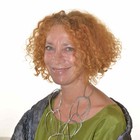
Funzione/Ruolo
Professoressa associata di Lingua e letteratura araba all'Università Ca' Foscari di Venezia
Percorso professionale
Dopo la laurea in Lingue e letterature orientali (arabo) presso l'Università Ca 'Foscari di Venezia, consegue il dottorato di ricerca in "Studi sul Medio Oriente e sul Maghreb dalla fondazione dell'Islam ai giorni nostri" all’Università degli Studi di Napoli “L’Orientale”.
Nel 2002 inizia varie collaborazioni accademiche: è ricercatrice di ruolo all’Università di Genova fino al 2008 e sempre dal 2002 insegna letteratura e cultura araba all’Università di Urbino e legge islamica, interculturalità e cittadinanza sociale alla Ca 'Foscari. Nel 2013 e 2014 insegna cultura araba e islamica all’Istituto Superiore di Scienze Religiose (ISSR) Santa Maria di Monte Berico e Insegna lingue e culture arabe anche all’Università di Padova e al Master della Pontificia Università Antonianum di Roma.
È attualmente Professoressa associata di lingua e letteratura araba presso il Dipartimento di Studi sull'Asia e sull'Africa Mediterranea (DSAAM) della “Ca 'Foscari", dove segue inoltre i corsi di pensiero e teologia islamici e di filosofia islamica.
Tiene regolarmente seminari e corsi in svariate università e istituti di ricerca.
Risultati scientifici
La sua attività accademica segue una serie di linee distinte di ricerca.
La linea principale è quella del Corano, analizzato sia lessicalmente che nelle differenti interpretazioni contenutistiche della successiva letteratura araba islamica. A quest’area appartengono, tra gli altri, i suoi “Studi sul male” (2002), la vergine Maria nel Corano (1990 e 1997), Caino (1999), Faraone (2204), Giona (2006), Come viene percepita la donna (2009). Questi studi si basano sulle più rappresentative opere di esegesi in lingua araba, principalmente sunnita, rilevando le affiliazioni degli autori alle principali scuole di pensiero. Tramite l’utilizzo delle stesse fonti, redige la voce Fātiḥa dell’enciclopedia dell’Islam (2013). Sempre nella stessa area d’interesse, ma rivolgendosi anche ai “non addetti ai lavori”, si annoverano: una traduzione completa e parzialmente annotata del Corano (2010), i Saggi sugli angeli (2012) e sul concetto di "Popolo eletto" (2015), le edizioni italiane del Dizionario del Corano (2007) e della Fioritura della teologia musulmana di J. Van Ess (2008) e un saggio su Kalama (2005).
Pur differenziandosi, seguono la stessa traccia: una serie di studi recenti sull'etica religiosa compresi in un progetto di ricerca sulla natura obbligatoria del lavoro (2012), sulla gratitudine o šukr (2012), sul giudizio o ḥilm, sulla pace o salām e sulla misericordia (tutti 2015); ancora l’etichetta del silenzio e del linguaggio (2016); tenerezza o rifq, accoglienza e ospitalità, moderazione o wasaṭiyya, e la bellezza come valore islamico (2017). In questi casi la sua ricerca si basa su testi canonici e sulle principali fonti esegetiche, ma anche sulla letteratura religiosa adab, incentrata sul periodo classico (ad esempio Ibn Abī al-Dunyā), e ai suoi sviluppi in epoca moderna e contemporanea. Dalle stesse fonti viene anche la voce enciclopedica da lei redatta “Gratitude and Ingratitude” (Enciclopedia dell’Islam, 3° edizione, 2014).
Un altro oggetto della sua ricerca sono gli elementi di convergenza e divergenza tra i pensieri religiosi islamico, cristiano ed ebraico rappresentati nella letteratura medievale araba. A questa area appartengono gli studi sulla Guida dei Perplessi (1997), su "La regola d'oro" (2004), sulla corrispondenza tra Ibn al-Munağğim e Qusṭā ibn Lūqā (2004), sulla teoria etica di Yaḥyā ibn "Adī nel Tahdhīb al- Akhlāq e una serie di lavori accademici generali su, ad esempio, gli elementi cristiani nella formazione del pensiero filosofico arabo (2005).
Una linea di interesse scientifico più recente si concentra invece su alcune figure sintomatiche, in particolare le donne, nelle relazioni culturali tra il mondo islamico e l'Occidente. A questo filone si possono ricondurre gli studi su Mayy Ziyāda (1886-1941) e Maria Nallino (1908-1974), entrambi di prossima pubblicazione.
Un altro ambito di ricerca è la letteratura adab su gioielli e pietre preziose: in questo contesto troviamo un saggio sugli scritti di al-Tifāšī (1999) e un lavoro accademico generale su quell'autore (1999).
Infine, alcuni dei suoi studi più recenti si concentrano sui cambiamenti culturali e sociali relativi all'attuale popolazione musulmana in Italia (2006, 2010, 2017).
Attività editoriali e pubblicazioni
Oltre a quelle già menzionate, tra le pubblicazioni più recenti si annoverano:
Monografia
[2019 forth.] Zilio Grandi I, L’affinamento dei caratteri di Yaḥyā ibn ‘Adī (363/974) , Bologna, PCAC, pp. 1-257.
Articoli
[2018] Zilio Grandi I, La pazienza dell’Islam: la virtú detta ‘ṣabr’, in Studia Graeco-Arabica, vol. 8, pp. 105-118.
[2018] Zilio Grandi I, Povertà e Islam, in Via Borgogna 3, vol. 9, pp. 105-117.
[2018] Zilio Grandi I, The virtue of Tolerance. Notes on the root s-m-h in the Islamic tradition, in Philosophy & Social Criticism, vol. Special Issue (Reset DOC Seminars), pp. 1-10.
[2018] Zilio Grandi I, Maria Nallino (1908-1974) and the Birth of Arabic and Islamic studies at Ca’ Foscari,150 Years of Oriental Studies at Ca' Foscari, Venezia, ECF, pp. 85-93.
[2018] Zilio Grandi I, Fuga ed esilio di Mayy Ziyāda (Nazareth 1886 – Il Cairo 1941), Donne in fuga./ Mujeres en fuga. / Femmes en fuite. Atti del Convegno Venezia, Ca’ Foscari 29-30 novembre 2017, Venezia, ECF, pp. 59-74.
[2017] Zilio Grandi I, Dalla tenda di Abramo alle dimore dei credenti. La sacralità dell’ospite nella tradizione islamica, in Politica e Religione, vol. 2016, pp. 131-142.
[2017] Zilio Grandi I, Islamica moralia: appunti sulla gentilezza o rifq (Islamica moralia: notes on kindness or rifq), in Studi Magrebini, vol. II, pp. 649-663.
[2017] Zilio Grandi I, Modestia, pudicizia e riserbo: la virtù islamica detta haya, inPhilologia Hispalensis, vol. 31, pp. 169-183.
[2017] Zilio Grandi I, Medietà e facilitazione. Note a margine di alcune fonti arabe islamiche contemporanee (Some comments on the Golden Mean and Enabling from selected Arabic and Islamic contemporary sources) in Annali di Ca Foscari Serie Orientale, vol. 53, pp. 5-24.
[2017] Zilio Grandi I, Campanini M, Islam religione d'Occidente, Sesto San Giovanni: Mimesis, 2016 (Passato Prossimo). 153 p. in Quaderni di Studi Arabi, vol. 11, pp. 258-259 (ISSN 1121-2306) (Recensione in rivista).
[2017] Zilio Grandi I, Le virtù del musulmano , in L'Islam non è terrorismo, Bologna, Il Mulino, pp. 137-152 (Articolo su libro).
L’elenco completo può essere consultato nel repertorio.



